Public Health News
Falk in Paris
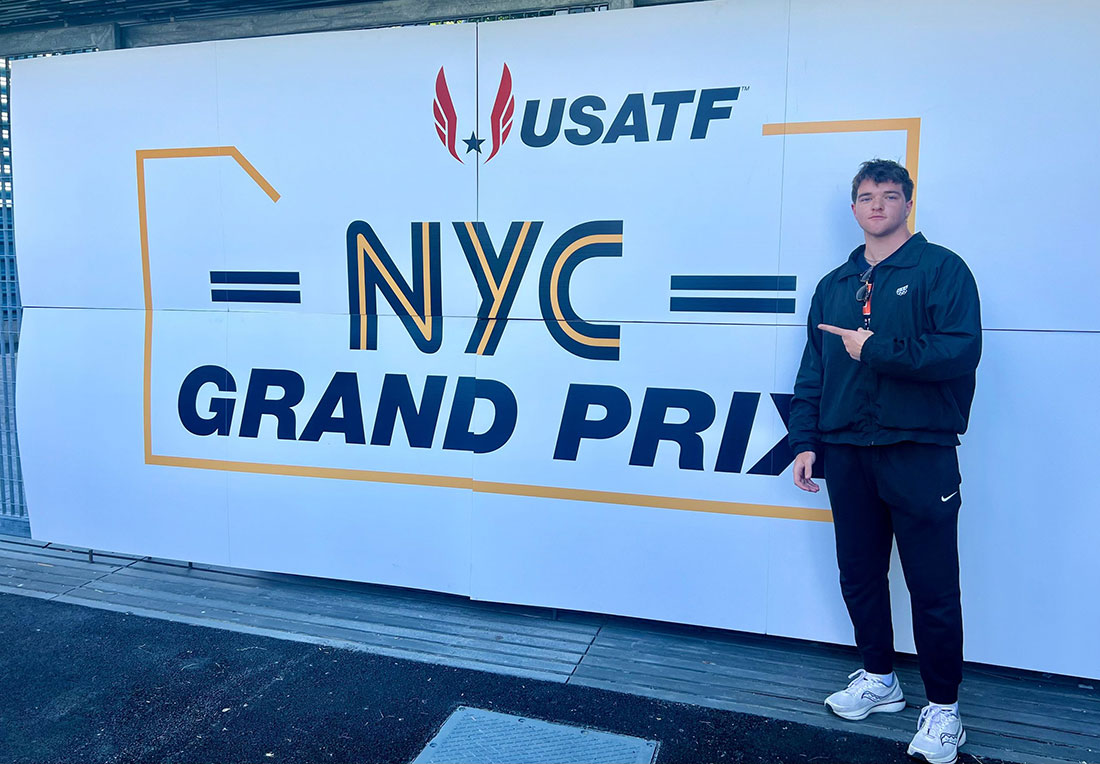
The 2024 Paris Summer Olympics and Paralympics are here and representatives from the Falk College of Sport and Human Dynamics at Syracuse University will have an impact on this year’s Games – and, quite possibly, future Olympic Games.
The Falk College representatives who are involved in several unique ways with the Olympics and Paralympics include current Falk students Dan Griffiths and Livia McQuade, Department of Sport Management Associate Professor Jeeyoon “Jamie” Kim, and Falk graduates and former Syracuse University student-athletes Freddie Crittenden III, Kristen Siermachesky, and Lysianne Proulx. Here are their stories:
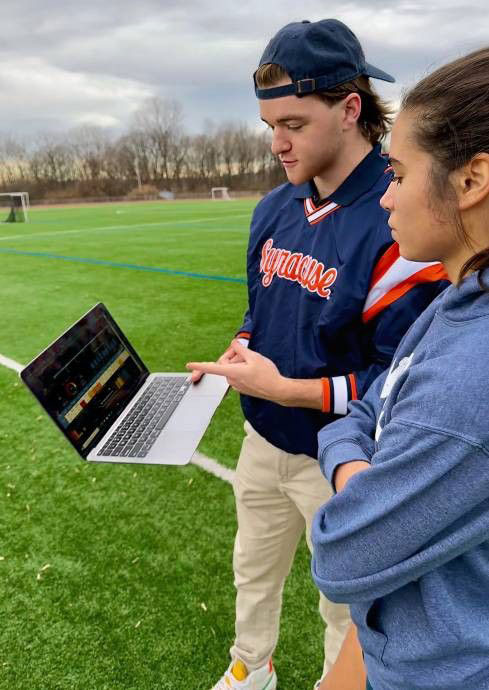
Student: Dan Griffiths
At Syracuse University and now with the U.S. Track and Field team (USATF), sport analytics major Dan Griffiths ’26 is helping to revolutionize how performance data is collected and analyzed.
When Griffiths started working with the Syracuse track and field and cross country teams before the 2023-24 academic year, the teams weren’t utilizing a data-gathering system. But the student-athletes were using Garmin wearables to track their own data, so Griffiths built his own application and a tool that transported all of their data into his application, which then created spreadsheets he used to analyze that data.
With Griffiths’ help, the Syracuse women’s cross country team won its first NCAA Division I Northeast Regional championship since 2011. Throughout the academic year, Griffiths conducted and presented his research at various national competitions and conferences, including the UConn Sports Analytics Symposium (he was runner-up in sport analytics research), and the inaugural Sport, Entertainment and Innovation Conference (SEICon) last week in Las Vegas.
Griffiths’ success at Syracuse and his interest in track and field led to his connection with USATF, which gave him the freedom to explore his areas of interest. Using a combination of the latest technology, Griffiths helped create three-dimensional models to best understand an athlete’s musculoskeletal forces.
“For throwers (discus, shotput, javelin), my work focused on using a pose estimation model to detect patterns that could be linked to longer, more powerful throws,” Griffiths says. “For sprinters and distance runners, I used pose estimation data to monitor overtraining and track progress throughout the season and before meets.
“I also conducted extensive research for multi-event athletes in the heptathlon and decathlon,” he adds. “This research aimed to understand how fatigue affects scoring in multi-events and how different training sequences can reduce fatigue.”
Griffiths shared his work with the coaches, and at least two of the athletes he analyzed will be participating in the Olympics: javelin thrower Curtis Thompson, and 400-meter runner Alexis Holmes. During his time with USATF, Griffiths traveled to the New York City Grand Prix Meet–the final meet for track and field athletes before the U.S. Olympic Trials–and the Olympic Trials in Eugene, Oregon.
“The thing we think about every morning is ‘How can we win another gold medal today?’” Griffiths says. “Having the opportunity to combine everything I’ve learned and truly be a trailblazer and innovator for USATF and those athletes, especially in a track and field biomechanics context, has made me uber-passionate about the work we are doing at Syracuse and the future of AI/analytics and sports.”
The track and field events run from Aug. 1-11.
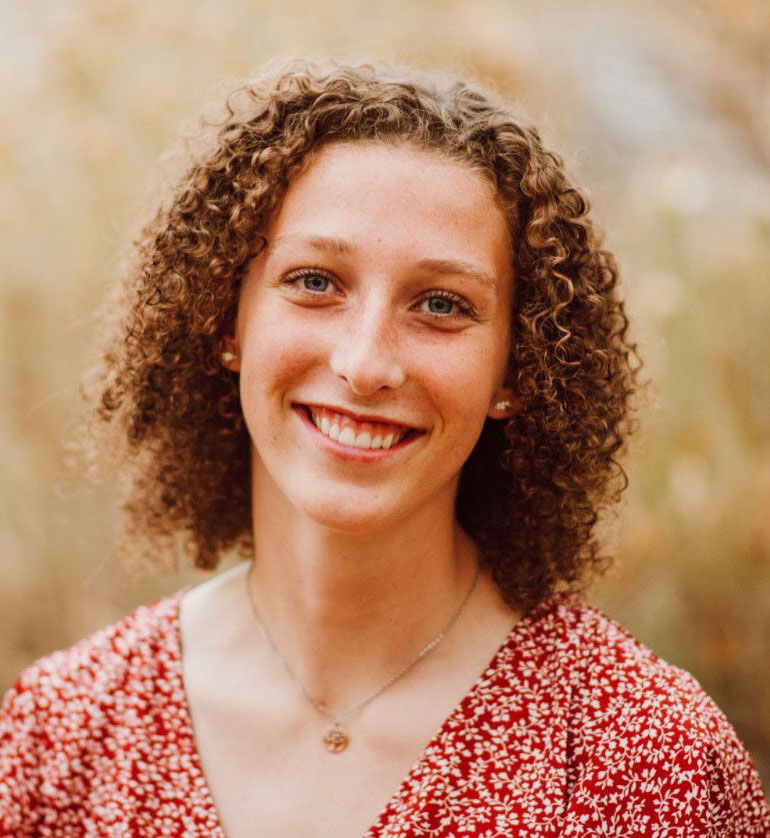
Student: Livia McQuade
Livia McQuade ’25 is a sport management major and sport event management minor who has spent this summer in Loveland, Colorado, as an Athlete Relations Intern with Olympus Sports Group. Olympus is a management and marketing agency that provides top sponsorship opportunities and marketing strategies for Olympic and Paralympic athletes.
In her role, McQuade has interfaced with athletes from the U.S. Olympic and Paralympic teams and their partners, and with the U.S. Olympic and Paralympic Committee and other national governing bodies. Her projects have included reviewing contracts, building athletes’ personal websites, and organizing outlines for athletes’ speaking engagements.
“I’ve had a truly incredible experience within the Olympic and Paralympic Movement – during a Games year of all times!” McQuade says. “Through it all, I’ve had the privilege to work with some of sport’s most impactful Olympians and Paralympians, including Apolo Ohno, Jessica Long, Noah Elliott, Sarah Adam, Alex and Gretchen Walsh, Alex Ferreira, and Steve Serio.”
McQuade, the executive vice president of the Sport Management Club in Falk College and co-chair of the club’s 2024 Charity Sports Auction, says she wants to work with the Olympic and Paralympic Movement following graduation and this internship has been an invaluable step in that process. Her experience with Olympus will continue in September, when she’ll attend the Paris 2024 Paralympic Games to serve as a resource for U.S. athletes, their families, and their sponsors. The Paralympic Games run from Aug. 28-Sept. 8.
“I could not be more grateful and excited,” McQuade says of her upcoming experience in Paris. “My leadership (at Olympus Sports Group)–Ian Beck and Jessica Leonard ’16–have thrown extraordinary opportunities my way, and they will remain valuable mentors long into my career.”
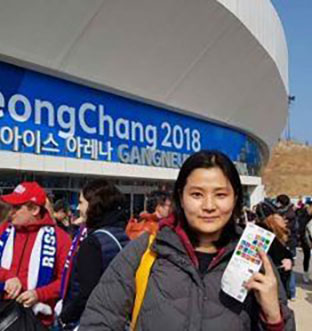
Faculty: Jeeyoon “Jamie” Kim
Jeeyoon “Jamie” Kim is an associate professor in the Department of Sport Management who studies the long- and short-term social and economic effects of hosting the Games and other major sporting events. Kim is the former manager of the Korean Olympic Committee, and on Aug. 8 she’ll present at the 11th International Sport Business Symposium in Paris.
Kim’s presentation will focus on how the Youth Olympic Games, an Olympic-style event for athletes between 15 and 18 years old, can better impact their host city and support the aims of the Olympic Movement.
“The hope for Olympic sport participation legacy is grounded on the ‘trickle-down effect’ (i.e., watching Olympians compete will inspire youth to participate in sport),” Kim says in a Q&A with Syracuse University News. “For the Youth Olympics, the event can also be a steppingstone for younger athletes to compete on the international stage and grow to become Olympians. Additionally, the Youth Olympics offer many grassroots-level sport opportunities (e.g., sport camps, collaboration with local schools) to encourage the general youth to learn about Olympic sports.”
To combat youths’ dwindling interest in the Olympics, the International Olympic Committee added break dancing, sport climbing, and surfing to the lineup for Paris. Kim says this is a critical time for the future of the Olympics as upcoming Games in Paris, Milan Cortina (2026), and Los Angeles (2028) will be held in traditionally strong sports markets where there are opportunities to increase interest.
“Paris 2024 will be the first Olympics to include breaking in the official program,” Kim says. “We will have to see how the event turns out. But, so far, looking at the Olympics qualifiers series and the ticket popularity, it seems like there is a lot of interest garnered for the sport.”
Kim spent 5 ½ years with Korean Olympic Committee as a member of its International Games, International Relations, and 2018 PyeongChang Olympics task force teams. While in Paris, Kim will conduct research in Korea’s Olympic Hospitality House and share her findings with students in her Olympic Sport Management (SPM 356) and Olympic Odyssey (SPM 357) courses.
And Kim plans to attend the women’s individual finals event of her favorite summer Olympic sport, archery. “Korea has been very strong in the sport historically, and it is always fun to watch a sport where my team does well,” Kim says.
For more about Kim’s research and visit to Paris, read this Olympic Legacy story and watch a video of Kim from Syracuse University’s central marketing team.

Athletes: Freddie Crittenden III, Kristen Siermachesky, and Lysianne Proulx
At the U.S. Olympic Trials in late June, longtime U.S. hurdler Freddie Crittenden III ’17 qualified for his first Olympic Games by running a personal-best 12.96 seconds in the 110-meter hurdles. Crittenden finished second overall to teammate and three-time world champion Grant Holloway, who recorded a time of 12.86.
A public health major at Falk and a former All-American for the Syracuse track and field team, Crittenden just missed a bronze medal at the World Championships last summer and now at age 29, the Olympic Trials may have been his last opportunity to qualify for the Olympics.
“It feels amazing. Honestly, I’m still in shock and I’m trying to figure out what happened,” Crittenden said immediately after his Olympic Trials run. “But it’s an amazing feeling to come out here and accomplish what I’ve been trying to accomplish for the past 17 years. It’s beautiful.”
Two former Falk College sport management majors and Syracuse University student-athletes, rower Kristen Siermachesky ’21 and soccer goalkeeper Lysianne Proulx ’21, are alternates for the Olympics with Team Canada.

Proulx is Team Canada’s third-choice goalkeeper, meaning she will be activated if either the starting or backup goalkeeper is injured. Although she didn’t start at Syracuse until her junior season, Proulx recorded the fourth-most saves (281), second-most saves per game (5.3), and seventh-most shutouts (eight) in program history.
Since graduating from Syracuse, Proulx has excelled in professional leagues in Portugal, Australia, and now in the United States with Bay FC of the National Women’s Soccer League. This past February, Bay FC acquired Proulx from Melbourne City for what Melbourne City described as a record-breaking transfer fee for an outgoing A-League player.
A native of Montreal, Quebec, Proulx represented Canada in the FIFA U-17 Women’s World Cup and FIFA U-20 Women’s World Cup. She went to the 2023 FIFA Women’s World Cup as Team Canada’s third-choice goaltender behind Kailen Sheridan and Sabrina D’Angelo, who have maintained their positions for the Olympics.
Like Proulx, Siermachesky ’21 will be available to her team if an injury occurs. But unlike Proulx, her path to Canada’s rowing team featured a different sport at Syracuse: ice hockey. She played four years as a defenseman at Syracuse and recorded a black-and-blue inducing 132 blocks in 125 games for the Orange.
After graduating from Syracuse, the native of New Liskeard, Ontario, considered playing ice hockey overseas but decided to pursue her graduate degree in sports administration at North Carolina. She wanted to continue her athletics career, but North Carolina doesn’t have an ice hockey team. Then-Syracuse ice hockey coach Paul Flanagan suggested she try rowing and contacted the Tar Heels’ coach to make that connection.
Siermachesky’s athleticism and potential caught the eye of the Team Canada Development Team, which asked her to move to British Columbia to train with the national team. Just three years into the sport, she is now on the cusp of competing in the Olympics and it’s likely she and Proulx will remain in the mix for the next summer Olympics in Los Angeles in 2028.
The rowing competition runs from July 27-Aug. 3, while the women’s soccer tournament started July 24 and runs through Aug. 10.
Editor’s Note: This story does not include all Falk College representatives in the Olympics. If you know of someone who is involved and not mentioned, please email Matt Michael, Falk College communications manager, at mmicha04@syr.edu.
Building Community With Pride
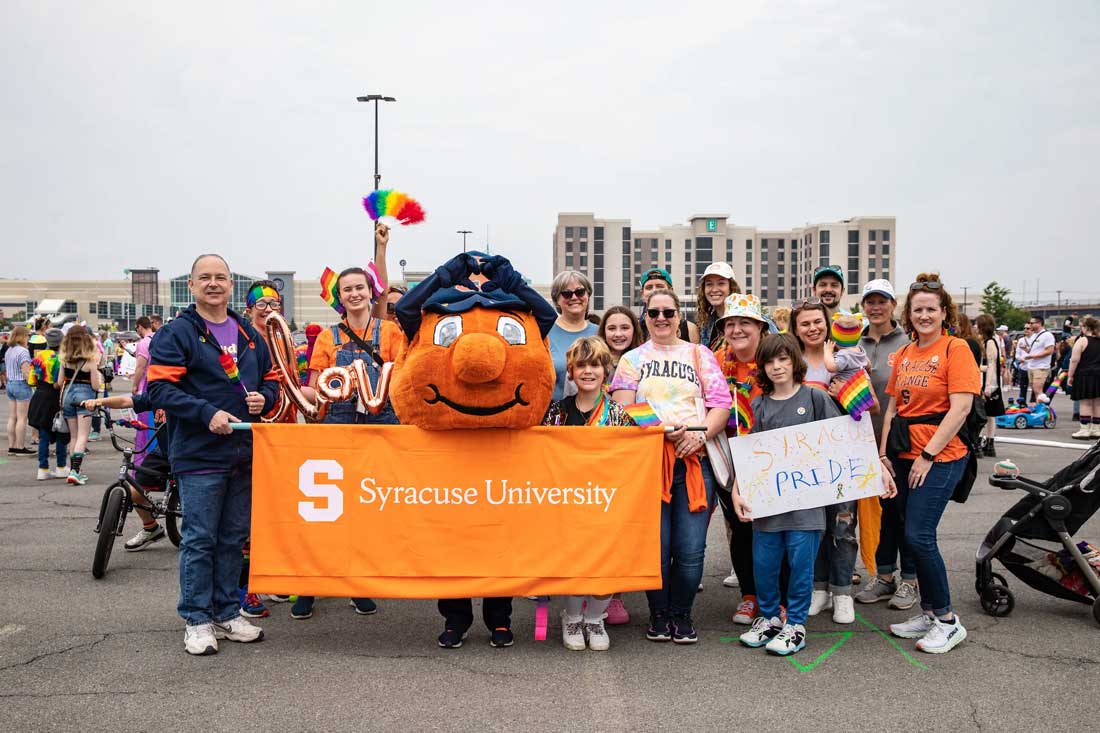
DaSilva sought out the LGBTQ Living Learning Community (LLC) on the fourth floor of DellPlain Hall and the LGBTQ Resource Center in nearby Schine Student Center, where he has worked part time. The center is part of the Intercultural Collective (IC), an umbrella organization in the Division of the Student Experience that fosters inclusion and belonging on campus.
“The LGBTQ Resource Center is great because it works with the IC to provide resources, trainings and programs to students,” says DaSilva, a triple major in public health, policy studies, and citizenship and civic engagement (CCE). “I feel like I’m not alone in my experiences as a student—that there are people I can turn to for support.”
They include Joshua Seguí-Rodríguez (JSR), executive director of intercultural engagement, and Nathan Torabi (NT) ’26, a fellow CCE major also pursuing degrees in political science and law, society and policy.
We recently caught up with them and DaSilva (TDS) to discuss the University’s involvement with Pride Month and its broader commitment to inclusive excellence.
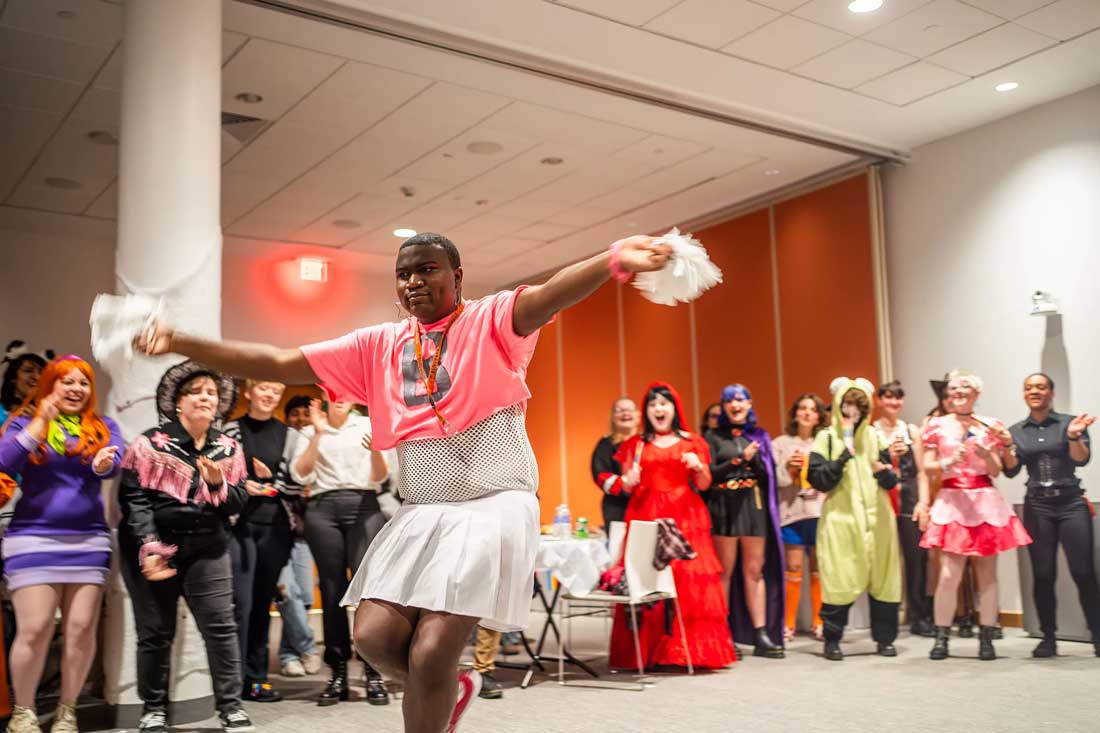
June marks the 55th anniversary of the Stonewall Uprising, a series of events between New York City police and LGBTQ protestors that helped ignite the gay rights movement and Pride Month. What can we learn from these milestones?
JSR: The protestors at Stonewall stood up for their rights to be acknowledged and respected. Their courage and determination sparked a movement that has led to significant advancements in LGBTQ rights. We must learn the importance of actively listening to and addressing the concerns of marginalized communities to foster a more inclusive and equitable society.
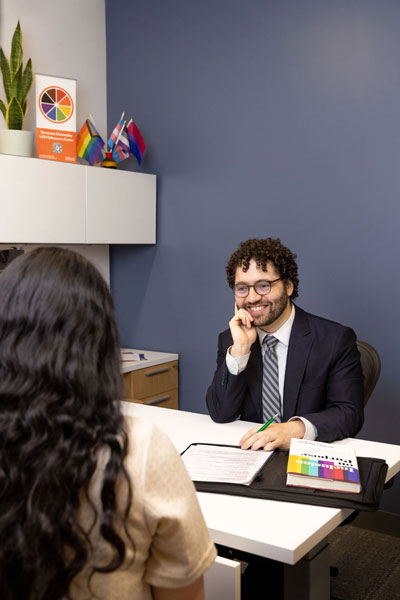
I oversee the Intercultural Collective, which builds on the legacy of the Stonewall events by giving space to people from all walks of life, including historically excluded communities. We don’t limit LGBTQ historical education to a single day or month. The IC considers it a year-round celebration. It feels good to come together and be surrounded by people invested in our success.
TDS: For many straight people, Pride Month is a rare opportunity to directly experience queer expression. This kind of awareness-raising, where we learn about the lived experiences of others, is healthy for our community and society.
NT: Through my connections in the Maxwell School of Citizenship and Public Affairs, I’ve been CNY Pride’s first intern since January. What I like about the organization [which hosted the first CNY Pride Parade and Festival in 1985] is that it doesn’t have a physical office. I can work for them anytime, anywhere.
While students, faculty and staff have participated in the Pride parade over the years, the University didn’t become officially involved until recently. [CNY Pride Board President] Jimmy Monto and I have been exploring the possibility of a statewide festival and parade, with which the University could play a leadership role. This work also informs my research into LGBTQ advocacy.
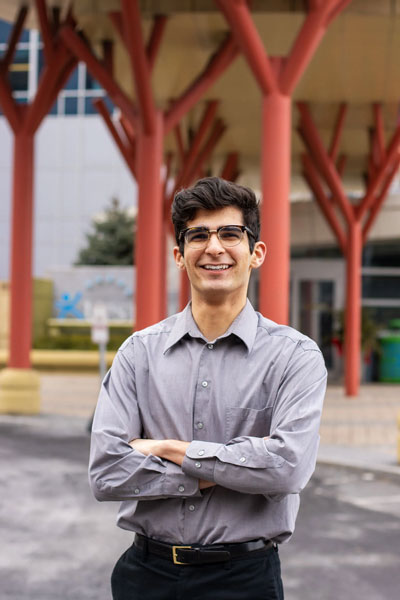
In what ways does the IC support the notion of a welcoming campus?
JSR: Because of our location in Schine, we get a lot of foot traffic. Students also like to hang out in our lounge because it’s safe and comfortable—like being at a friend’s house.
The IC supports communities, not programs. We’re currently helping the Barnes Center at The Arch promote the University’s involvement with the CNY Pride Festival and Parade. We also work with them year round to support Trans and Gender Affirming Services. In October, the IC will partner with units like the LGBTQ Resource Center on programming for LGBTQ History Month.
There are many resources on campus and in the community for students exploring gender identity and expression. Students also can update their personal information, such as their preferred name and personal pronouns, within MySlice.
How can students become better LGBTQ allies?
NT: There are a lot of myths and misconceptions that shape public perception of the LGBTQ community. Listening and asking intelligent questions are good first steps.
As cofounder of the campus chapter of NextGen [Next Generation Leadership Corps], I recently attended a summit at Montclair State University, where I spoke about mass incarceration. That experience and my CCE courses got me thinking about how different people view LGBTQ issues. Making mistakes and exhibiting grace are part of the learning process, whether one wants to become an ally or, in my case, an LGBTQ civil litigator.
How do you build community?
NT: Mainly through my research at Syracuse. As a result, I have several people—including Junko Takeda [a professor in the history department and the interim chair of CCE], Amy Schmidt G’14 [assistant director of CCE] and Laura McArdle ’09, G’12, G’16 [director of upper-class advising in the College of Arts and Sciences and the Maxwell School]—in my corner. They’re huge supporters of my work.
Also, through my involvement with CNY Pride, NextGen and the Student Ambassadors [in Arts and Sciences and the Maxwell School], I can find out what’s on the minds of my peers. I get to put my LGBTQ advocacy skills into practice.
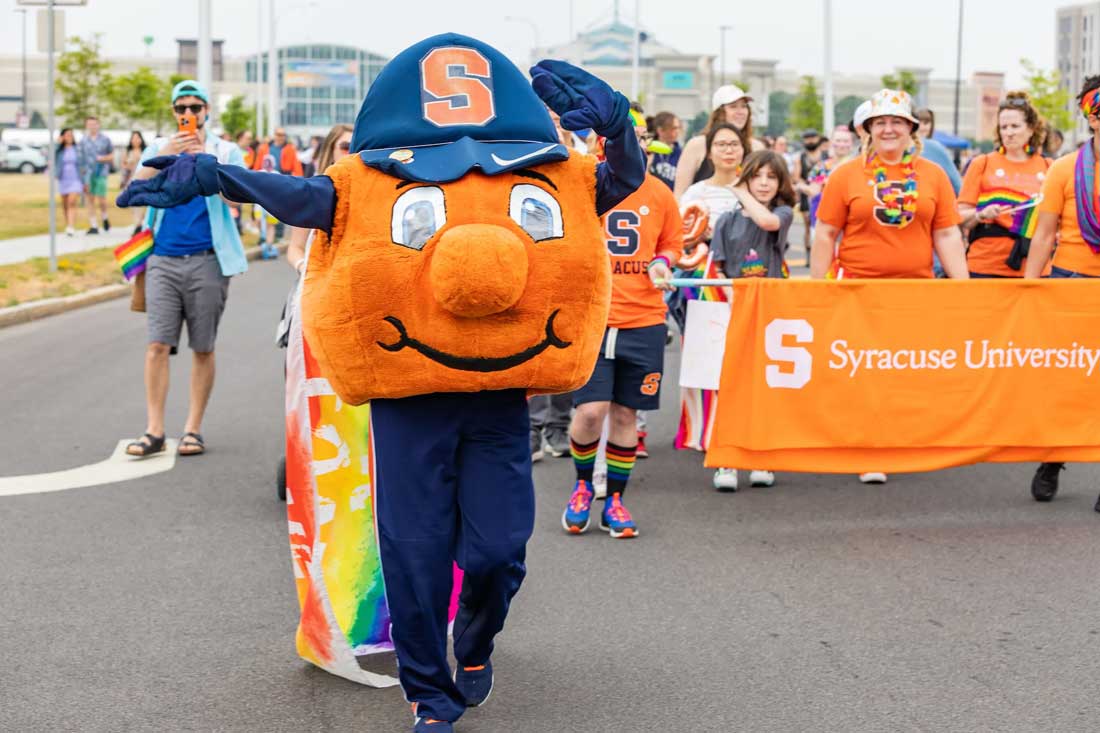
TDS: I like Affinity Groups. They’re smaller and less formal than LLCs but also focus on diversity and inclusion. The QTPOC affinity group [for queer and trans students of color] has given me social connections and reassurance that I otherwise wouldn’t have.
I also serve on the Student Association for Public Health Education [in Falk College], the Council on Diversity and Inclusion [CDI], and the First Year Seminar’s student advisory council. I’m using them to help create a more fulfilling environment for queer people of color.
JSR: Cross-campus partnerships are excellent ways to build community. And with the arrival of people like Mary Grace A. Almandrez, vice president for diversity and inclusion [and on whose advisory council DaSilva serves], and Dawn Singleton, vice president of student transition, access and inclusion, the climate on campus is shifting in a positive way. It’s up to us to make others feel heard.
An SU Story by Rob Enslin originally published on June 06, 2024
Focused on Future Success

A task force charged with the reimagination of Syracuse University’s human dynamics academic programs has been convened by Vice Chancellor, Provost and Chief Academic Officer Gretchen Ritter.
The work of the Human Dynamics Task Force will focus on programs in human development and family science; marriage and family therapy; public health; and social work with the aim of positioning them for future success by leveraging opportunities and expanding impact. Those programs have long been housed in the David B. Falk College of Sport and Human Dynamics which, as announced in April, will become the David B. Falk College of Sport and focus exclusively on sport-related disciplines.
“The human dynamics programs have played an important role in the history of our University, and have had a significant impact on the communities they serve,” Provost Ritter says. “With the transformation of Falk College comes a unique opportunity to take a thoughtful approach to ensuring the future success of these programs and the continuation of that legacy.”
The first meeting of the task force was held May 28, and work will continue throughout the summer. A final report will be submitted to Provost Ritter by the end of October.
Members of the task force include:
- Lois Agnew, associate provost for academic programs (co-chair)
- Rachel Razza, associate dean for human dynamics, Falk College (co-chair)
- Colleen Cameron, professor of practice of human development and family science, Falk College
- Marcelle Haddix, associate provost for strategic initiatives
- Jody Levison-Johnson, Falk College Advisory Board
- Melissa Luke, Dean’s Professor, School of Education
- Kenneth James Marfilius, assistant dean for online and distance education and associate teaching professor of social work, Falk College
- Sharon Owens, deputy mayor, City of Syracuse
- Ian Richardson, assistant director of undergraduate admissions, Falk College
- Ann Rooney, deputy county executive for human services, Onondaga County
- Tracey Reichert Schimpff, member, Falk Faculty Council and associate teaching professor and graduate director of marriage and family therapy, Falk College
- Merril Silverstein, professor of human development and family science and Marjorie Cantor Professor of Aging Studies, Falk College
- Yvonne (Eevie) Smith, associate professor of social work, Falk College
- Maureen Thompson, associate professor and undergraduate director of public health, Falk College
- Dyane Watson, professor of practice and chair of marriage and family therapy, Falk College
- Ryan O. Williams, associate dean, College of Professional Studies
A Syracuse University News story by Wendy S. Loughlin originally published on June 6, 2024.
High Impact
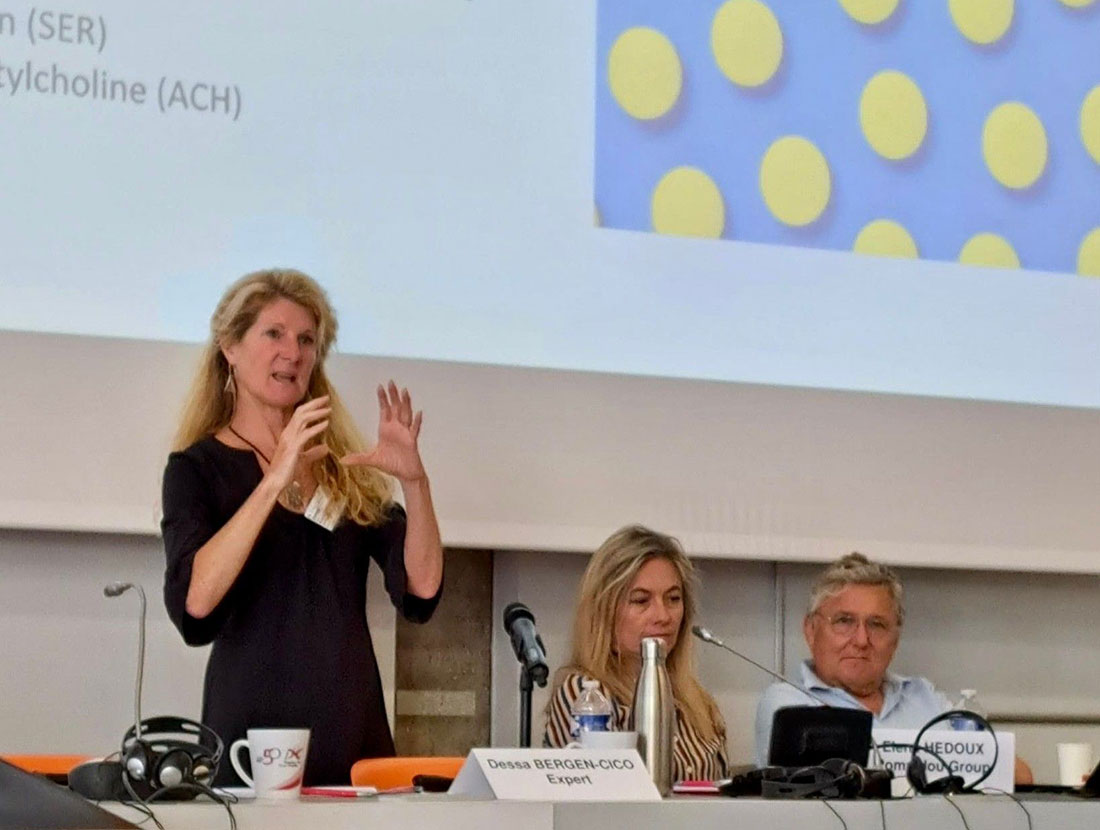
Dessa Bergen-Cico, professor and graduate director in the Department of Public Health, has been selected as the Falk College of Sport and Human Dynamics’ Honors Core Faculty member for a three-year term starting this May.
Renée Crown University Honors Program Core Faculty help shape the Honors Program curriculum and policy, and assist with strategic planning. Their academic vision and scholarly rigor guide the Honors Program in matters crucial both to the larger Honors faculty and to Honors students.
At Syracuse University, Bergen-Cico is coordinator of the Addiction Studies Programs, faculty in the Interdisciplinary Neuroscience Program, and a research affiliate for the Lerner Center for Public Health Promotion at the Maxwell School of Citizenship and Public Affairs. She was selected as Falk College’s Honors Core Faculty member by a four-person committee in consultation with Falk Dean Jeremy Jordan and Honors Program Director Danielle Taana Smith.
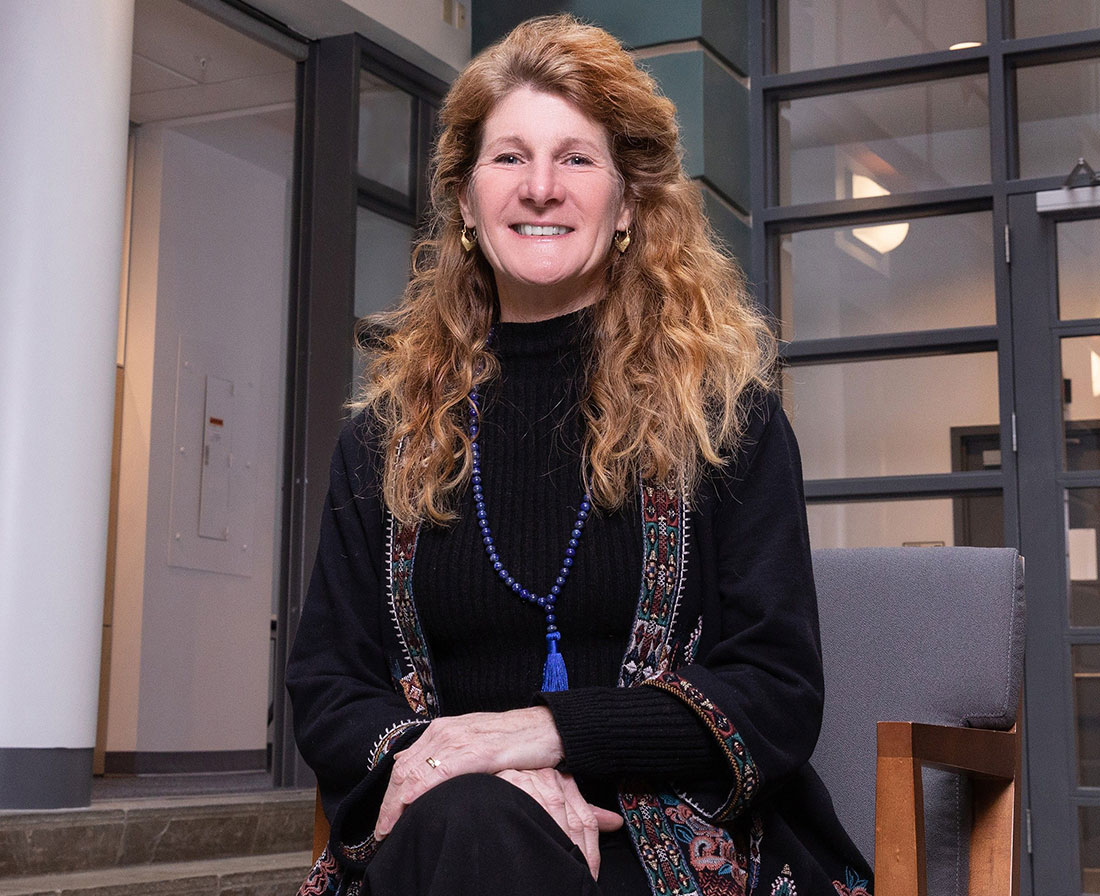
“Dessa’s credentials and passion for this opportunity were simply outstanding, and we are fortunate to have her represent us with the Honors program,” says Falk Associate Dean of Faculty Affairs Mary Graham, who was joined on the committee by Associate Dean of Academic Affairs Kay Bruening, Associate Dean of Research and Administration Katie McDonald, and Nutrition and Food Studies Associate Teaching Professor Chaya Charles.
“The Honors core faculty are so pleased to welcome Dr. Bergen-Cico to the group,” says Honors Program Director Smith, Professor of African American Studies in the College of Arts and Sciences at Syracuse. “The core faculty are high-impact teachers and researchers, at the forefront of their disciplines. They enhance the collegial experiences of students and are integral to the program.
“Dr. Bergen-Cico brings a background of undergraduate education excellence and academic leadership,” Smith adds. “We are excited to work with her to impact students, the campus, and our communities as a whole.”
Bergen-Cico holds a research appointment at the Syracuse Veterans Administration Medical Center and is a Fellow of the American Academy of Health Care Providers in the Addictive Disorders. She is a Certified Addiction Specialist (CAS), Certified Health Education Specialist (CHES), and Certified Mindfulness-Based Stress Reduction (MBSR) Teacher.
Bergen-Cico completed her MBSR teacher training through the Center for Mindfulness in Medicine, Health Care, and Society at the University of Massachusetts Medical School. She has been selected for two Fulbright Scholarships and was selected as a Rotary Peace Fellow in the International Rotary Peace Program at Chulalongkorn University in Thailand.
Bergen-Cico is currently leading a research team that’s exploring how to combine an artificial intelligence system with mindfulness-based practices to help people in treatment for opioid use disorder, and she co-developed the International Drug Policy Academy, which is one of several unique opportunities for students to obtain global experience that exposes them to new ways of thinking about substance abuse and addictive behaviors.
“As an Honors Faculty member, I would be able to teach students interdisciplinary and global perspective courses that encompass depth and breadth of content I am otherwise not afforded the opportunity to teach, at the level our top students need and want,” Bergen-Cico said in her letter of interest for the Honors Core position. “For example, it would afford opportunities to engage students in learning and research in applied neuroscience and cross-cultural biomarkers across diverse fields of study integrating sociology, psychology, and neurobiology in the study of addictive behaviors, stress, trauma, and conflict.”
Bergen-Cico is replacing Rick Burton, David B. Falk Endowed Professor of Sport Management, as Falk College’s Honors Core Faculty member.
“I and my colleagues in the Dean’s Office would like to thank Professor Burton for serving so capably for over 10 years as our Falk College designee to the Honors Program,” Graham says.
With Deepest Gratitude
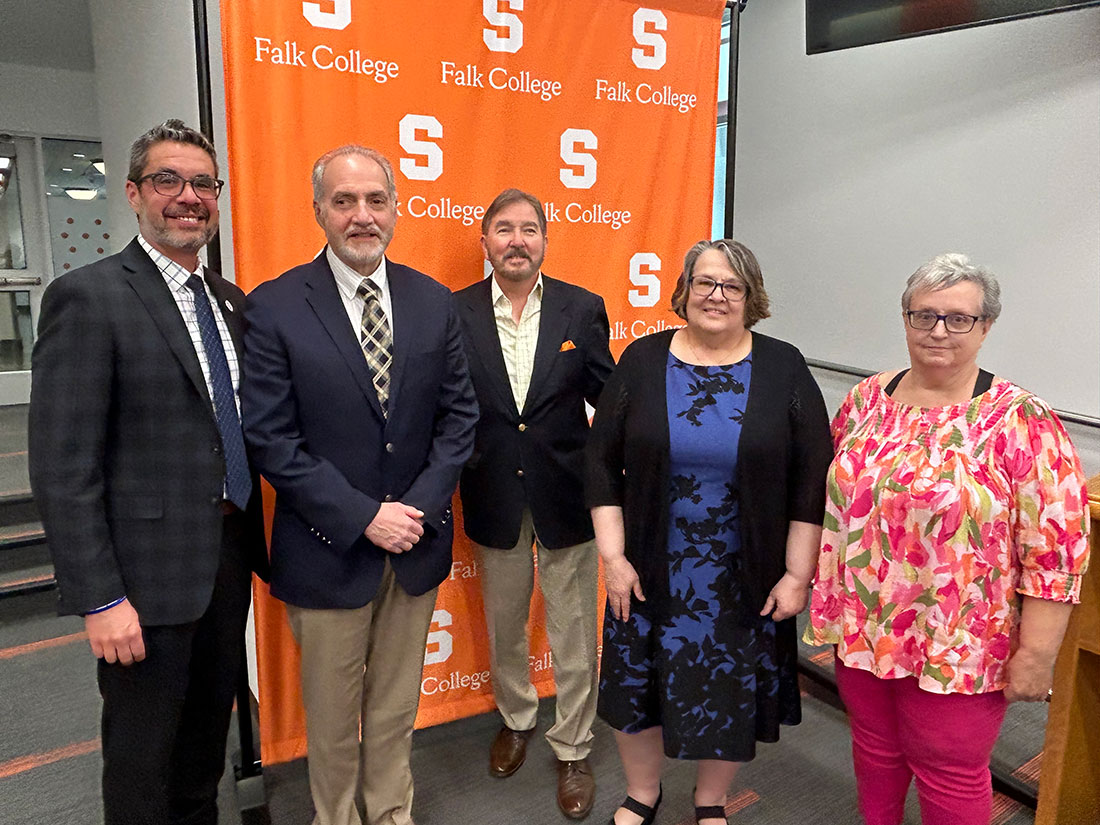
Falk College acknowledges with gratitude the contributions and dedicated service of five faculty and two staff members retiring this year: Thom deLara, Dennis Deninger, Donna Fecteau, Eric Kingson, Eileen Lantier, Dianne Seeley, and Michael Veley.
Here’s a look at the Falk College retirees who were honored at a celebration Friday, May 3 in Falk College Complex:
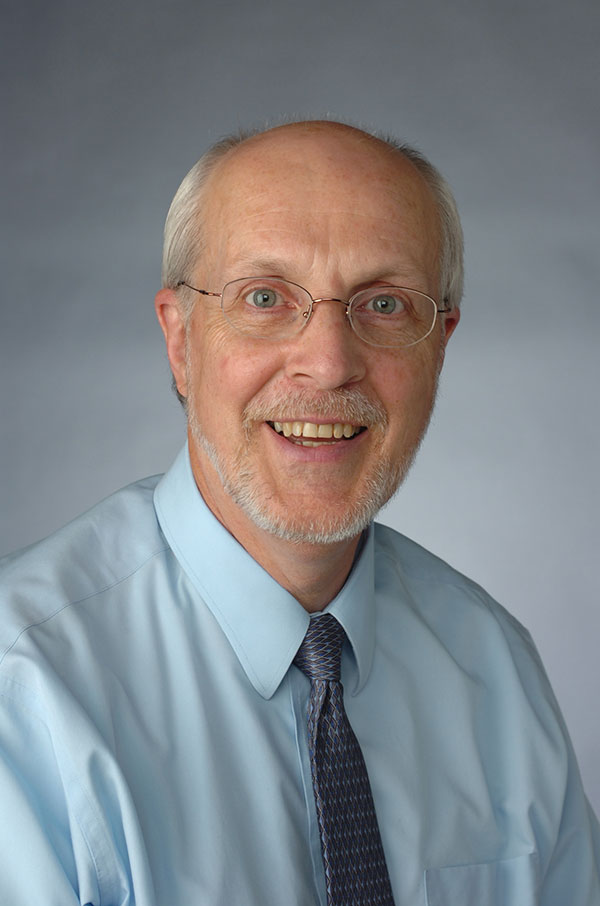
Thom deLara, M.S.W., M.B.A.
Professor of Practice in the Department of Marriage and Family Therapy (MFT)
Thom has 50 years of experience as an administrator, academic, licensed mental health practitioner, and management consultant. Prior to joining Syracuse University, he was chief executive for two not-for-profit organizations and served as vice-president of business development and strategic planning at a large health care organization.
Thom has authored more than 30 funded federal, state, local, and foundation grant applications, totaling more than $10 million. These grants established and expanded primary care services for rural and underserved communities in New York, New Jersey, Louisiana, and Mississippi. Thom also taught courses at Cornell University on the politics of public budgeting, critical issues in healthcare, and strategic management in healthcare.
Thom joined the Syracuse University faculty in 2002 and served for 14 years as Chair of the Department of Marriage and Family Therapy. He led substantial advancements in the curriculum to train students to meet the mental health and relational needs of children and families. Thom was deeply involved in the creation of the highly respected MFT training facility at Peck Hall, and he led the development and implementation of the online master’s degree program in marriage and family therapy.
In addition to his service as a faculty member and department chair, he served as a member of the University Senate, and numerous college and university committees. In all his work, Thom has demonstrated personal dedication to expanding and improving the quality of health care and mental health care for underserved populations and communities.
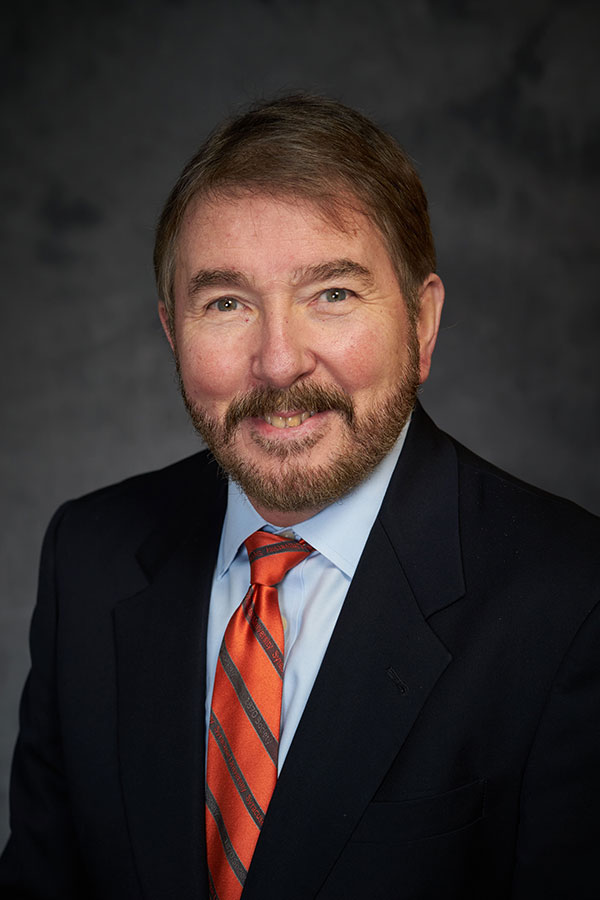
Dennis Deninger
Professor of Practice in the Department of Sport Management
Dennis is a former television production executive and Emmy Award-winner for innovation in sports television, production on digital platforms, and educational television. He spent 25 years leading production teams at ESPN, where he launched more than a dozen televised series and events, including Wimbledon, Major League Soccer, and the National Spelling Bee. He developed for American television the digital instant review technology called “Shot Spot,” which is now in use at all major tennis tournaments.
Dennis is the author of three books, including “The Football Game That Changed America” from Rowman and Littlefield scheduled for release this fall. He has written and directed two documentary films at Syracuse University: “America’s First Sport” about the history and rapid growth of lacrosse, and “Changing Sports, Changing Lives” on the impact of adaptive sports on persons with disabilities. His expert commentary is published in countless national and international media outlets, including The New York Times, Forbes, USA Today, Associated Press, The Wall Street Journal, and many others.
As a professor of practice at Syracuse University, Dennis created new graduate and undergraduate level courses and served as the founding director of the sports communications graduate program at the Newhouse School. Dennis has taught in Falk College since 2010. He was honored with the Falk College Faculty Member of the Year Award for Excellence in Teaching in 2014 and 2024.
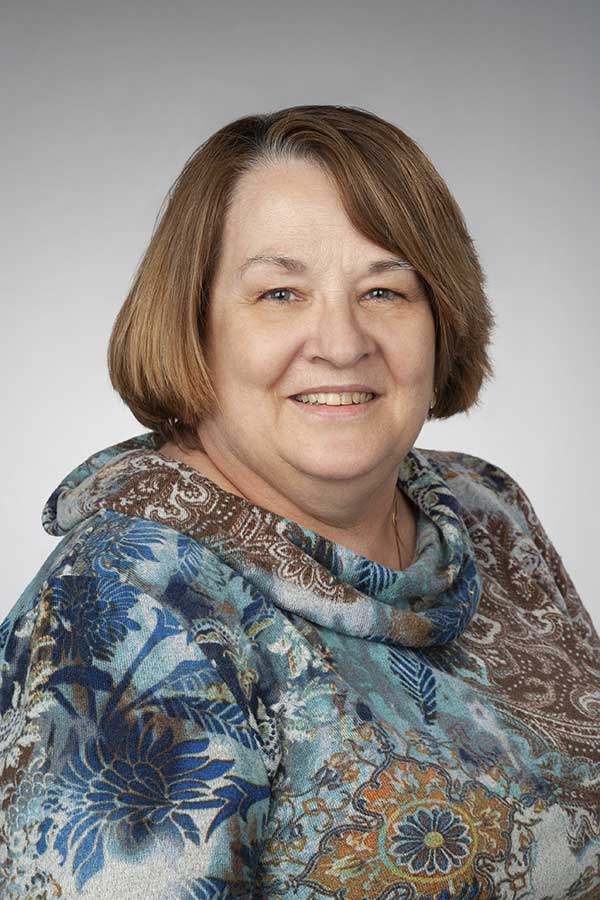
Donna Fecteau
Administrative Assistant in the Department of Exercise Science
Donna joined Syracuse University in 1987 as a temporary part-time employee in Human Resources. Within just a few months, she was hired full-time as office coordinator position in Health and Physical Education, now known as Falk College’s Department of Exercise Science. At the time, she had the only computer in the department with a hard drive. In fact, her understanding of hard drives and floppy discs was a key reason she was hired for the job.
She coordinated reservations for the gyms, pools, and fields used by students throughout campus. She was responsible for the one-credit activity courses that eventually became the I-Move program. Those courses enrolled up to 3,000 students each year from across campus.
In 1996, she was promoted to the administrative secretary position. The Exercise Science offices were in the Women’s Building until they joined Falk College and moved into the Falk Complex. During her time at Syracuse, Donna has supported students and faculty alike with her positive energy and kindness.
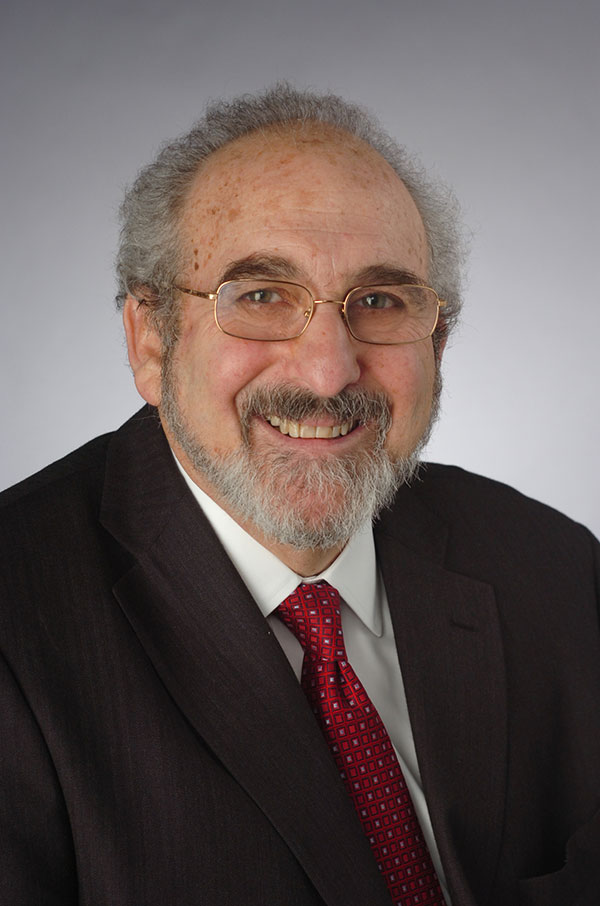
Eric Kingson, M.P.A., Ph.D.
Professor in the School of Social Work
Eric joined the Syracuse University social work faculty in 1998. He is also a faculty affiliate of the Syracuse University Aging Studies Institute and an affiliated researcher with the Center for Retirement Research at Boston College. Eric is a founding co-director of the Social Security Works, which launched the Strengthen Social Security Coalition with over 300 national and state organizations dedicated to advancing economic security through strengthening and expanding Social Security policies and programs.
Eric served as policy advisor to two presidential commissions — the 1982 National Commission on Social Security Reform and the 1994 Bipartisan Commission on Entitlement and Tax Reform. He was also an active volunteer on President Obama’s Retirement Security Policy Advisory Committee and later served on the advisory committee to the Social Security Administration’s transition team. He has held many service and leadership roles, including with the National Academy of Social Insurance and the Gerontological Society of America.
His numerous journal articles, book chapters, and research studies examine the politics and economics of population aging, Social Security policy, cross-generational obligations, and retirement income security. His expert commentary and contributions have been published in major media outlets such as the Huffington Post, The Washington Post, Boston Globe, and many others. Eric is the recipient of numerous awards, including the 2007 Chancellor’s Citation for Faculty Excellence and Scholarly Distinction, the 2010 Martin Luther King, Jr. Unsung Hero Award from Syracuse University, the 2015 Falk College Faculty Researcher of the Year Award, among others.
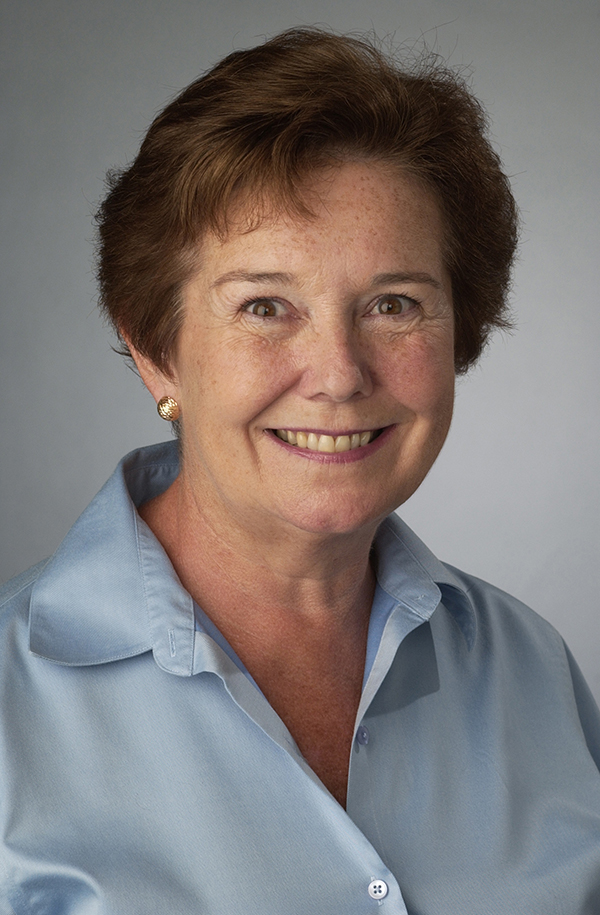
Eileen Lantier, R.N., Ph.D.
Associate Professor in the Department of Public Health
Eileen joined the Syracuse University College of Nursing faculty in 1983. She served as the Director of the Learning Resource Center on campus and assisted with the development of satellite learning resource centers in Binghamton and Waverly, New York, to support students enrolled in nursing programs in those regions. She and her colleagues successfully secured grants to procure the most up-to-date technology and promote excellence in clinical care. One standout example was the limited residency Nurse Practitioner program, which enrolled students from across the U.S. and as far away as Saudi Arabia. In addition to her teaching, applied research, and service, Eileen developed a NYSED-approved Certificate in Nursing Informatics at Syracuse University.
In 2006, Eileen was appointed Associate Dean of Academic Affairs of the newly merged College of Human Services and Health Professions, a predecessor of Falk College. For nearly 20 years, Eileen led the formation and transformation of countless academic degree programs across Falk College, including the inception of new programs for Syracuse University ranging from public health to sport analytics and beyond. Eileen skillfully managed curriculum, program review, course delivery, academic integrity, admissions, and many other key administrative areas.
At the university level, Eileen has served on the Syracuse University Senate, Chancellor’s University Leadership Team, Forum on Institutional Effectiveness, Health Care Advisory Committee, Campus Wellness Task Force, Nurses Alumni Association, and many others. She was appointed to several city, county, and state commissions, including the Syracuse Commission for Women and County Drug and Alcohol Commission. The New York State Board of Regents appointed Eileen to its Blue-Ribbon Panel on the Nursing Shortage.
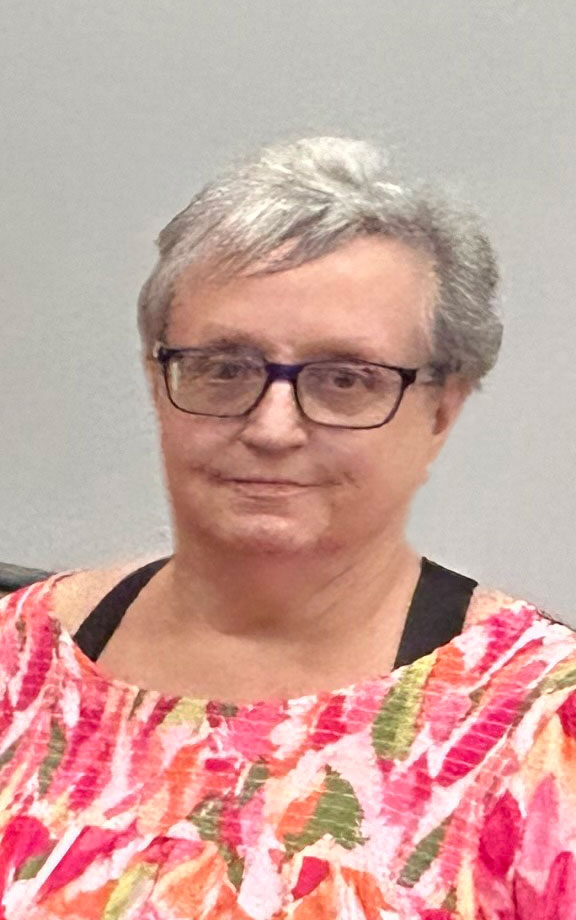
Dianne Seeley, M.S.
Operations, Space, and Facilities Manager for the Office of the Dean
Dianne worked at the Syracuse University Registrar’s Office as a classroom scheduling assistant before joining Falk College in 2008 as an administrative assistant in the Dean’s Office. Two years later, she started working in space, operations, and facilities for Falk. At the time, Falk programs were scattered across eight locations, from Drumlins on south campus to several main campus locations.
When the College of Law planned to vacate MacNaughton, White, Barclay, and Grant for the newly constructed Dineen Hall, Dianne and her colleagues prepared to bring Falk College under one roof. Dianne was a driving force in developing and implementing this extraordinary project that involved four years of planning, renovations, and construction from 2011 to the Falk College Complex dedication in 2015. The convergence of academic departments and administrative suites involved careful planning to ensure the Complex met the diverse programmatic needs for research and teaching. It included construction of major laboratories, including the Nutrition Assessment, Consultation and Education (ACE) Center, the Milton Conrad Sport Technology Lab, and the Susan R. Klenk Learning Café and Kitchens. The innovative design of the Klenk Kitchens earned recognition and honors from the American Institute of Architects Central New York Chapter.
In the years to follow, Dianne managed major projects such as the construction of the Falk Café on the second floor, the exercise science and public health relocations into Barclay, and the conversion of the former College of Law Library Stacks to the beautiful multipurpose space in Falk 335. In between these major milestones, Dianne has facilitated countless numbers of moves, ensuring everyone has what they need—from desks to door keys.
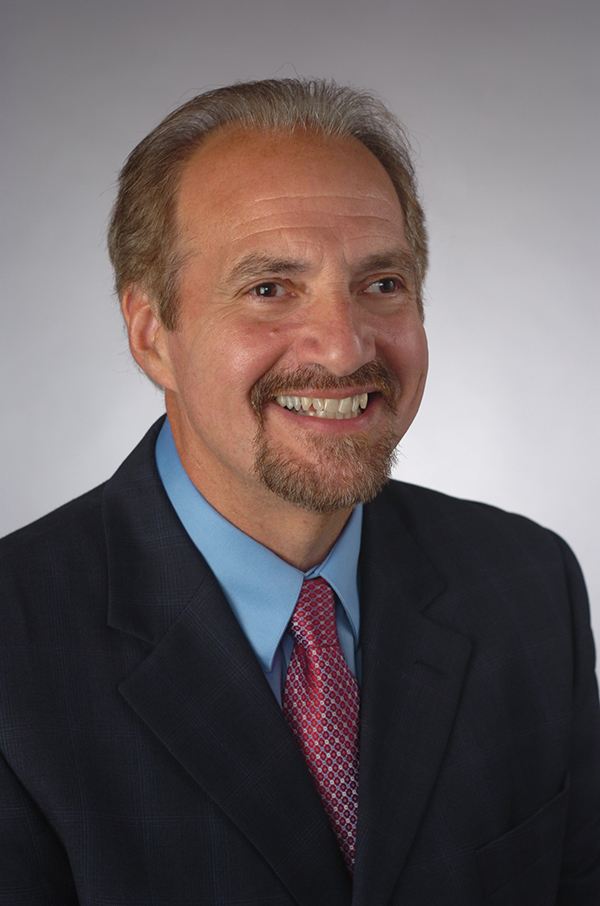
Michael Veley, M.P.S.
the Rhonda S. Falk Endowed Professor in the Department of Sport Management
Michael spent nearly two decades as a Division I athletic administrator at Cornell and Syracuse, including 10 years at Syracuse University, where he implemented marketing, communications, and corporate sponsorship initiatives. He is a three-time National Association of Collegiate Marketing Administrators (NACMA) award winner.
Michael has served as founding director and chair of the Department of Sport Management since 2005. Under his leadership, the program has become a national trailblazer in the sport industry. He led the development of more than 25 new academic courses, the nation’s first undergraduate degree in sport analytics, and a first-of-its-kind undergraduate degree in esports. Michael ensured that experiential learning was a defining feature of sport academic degree programs, which has resulted in a strong tradition of alumni career success and industry impact.
He brought the industry into the program, building partnerships with organizations such as the New York Yankees, National Baseball Hall of Fame, National Basketball Association Development League, and many others. Michael was instrumental in creating the Sport Management Advisory Council, which is comprised of influential sport industry presidents, founders, and CEOs. In 2013, he was named the inaugural Rhonda S. Falk Endowed Professor of Sport Management. That year he was also honored with a Faculty of the Year Award for excellence in service and dedication to Falk College, Syracuse University, and the greater Syracuse community.
Faculty of the Year Awards
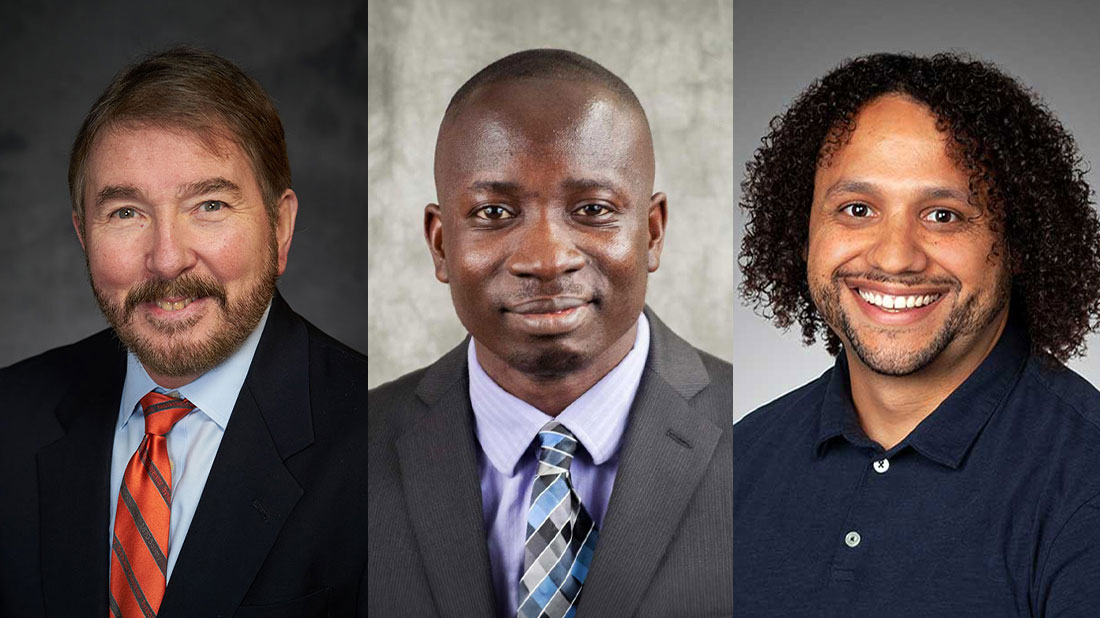
Chaya Lee Charles, an assistant teaching professor in the Department of Nutrition and Food Studies and chair of the Falk Faculty Council, thanked all faculty members who submitted nominations and her fellow Faculty Council members for their time and efforts in the award selection process.
“It is inspiring to see the talent and excellence that we represent as a college, and the high caliber of the nominees made our job challenging,” Charles says. “The Faculty Council is excited to share the results of our thoughtful deliberations.”
Here’s a look at the 2024 honorees with comments from their award presenters:
Dennis Deninger
Professor of Practice in the Department of Sport Management
Evan Weissman Memorial Faculty of the Year Award for Teaching Excellence
From presenter Chaya Lee Charles, assistant teaching professor in the Department of Nutrition and Food Studies and chair of the Falk Faculty Council:
Dennis has an impressive and extensive resume, which many of us are aware of. But as a refresher in this, his final year with us, and in the spirit of his broadcasting background, I will now provide you with the fastest three minutes in Dennis’ top-10 highlight reel:
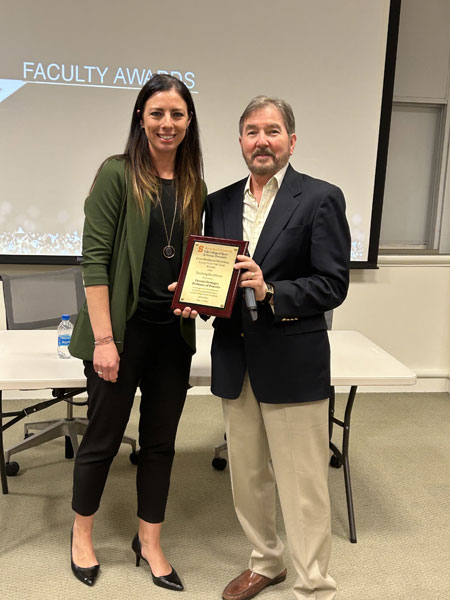
- Dennis is a former television executive who has produced live sports television from six continents and across the United States. In his 25 years at ESPN, he launched coverage of Wimbledon, the French Open, and Major League Soccer, and was the executive in charge of production for World Cup Soccer in 1994, a dozen Australian Opens, Friday Night Fights, Triple Crown horse racing, and a multitude of other live events.
- Dennis is a three-time Emmy award winner for categories in innovation in sports television, production on digital platforms, and educational television.
- Dennis developed for American television the digital instant review technology called “Shot Spot,” which is now in use at all major tennis tournaments.
- Dennis’ comments and analysis have been quoted in national and international media including The New York Times, USA Today, ABC News, CNN, Associated Press, The Wall Street Journal, and many other prominent media outlets.
- Dennis wrote, produced, and directed the biographical documentary “Agent of Change: David Falk,” which premiered at the ribbon-cutting of the Falk College complex and aired on ESPN2.
- Dennis has written and directed documentaries working with his students at Syracuse University as his research team. “America’s First Sport” was broadcast across the U.S. on the ESPN networks and explored the history, culture, and rapid expansion of lacrosse in the U.S. and around the world. “Changing Sports, Changing Lives” focuses on sports that have been adapted for persons with disabilities, and how these sports have impacted so many lives.
- Dennis has a new book coming out in September entitled “The Football Game That Changed America.” It is the direct result of the research he has done for his Falk Sport Management course on the Super Bowl and its impact on American life. He is the author of two books previously published entitled “Live Sports Media: The What, How and Why of Sports Broadcasting,” and “Sports on Television.”
- Dennis was the founding director of the sports communications graduate program at the Newhouse School of Public Communications, and he has created several new graduate- and undergraduate-level courses at Syracuse.
- Dennis is an outstanding teacher and colleague, as evidenced by his previous Falk College award for excellence in teaching 10 years ago. He has served as faculty advisor of the Sport Professionals of Color student club, and was an early supporter of the newly required sport management course, Race, Gender, and Diversity in Sport Organizations. He has consistently received positive course evaluations in all courses he teaches, including Sport Communications; Sport, Media, and Society; and the ever-so-popular Super Bowl and Society, in which he arranges for several students to travel with him to the Super Bowl and hosts a live Zoom class from the host city.
- The most important highlight and reason for his receiving this award–Dennis’ engagement with students in and out of the classroom is a model we can all aspire to. Whether providing academic or career advice, he is rarely seen in his office without a student seeking his guidance or support. One student summarized it best: “Professor Deninger has great enthusiasm every day and is a great storyteller, so his lectures are much more engaging than other professors might be. It’s very obvious that he knows the content from both an academic and experience perspective. It was an extreme privilege to be able to learn from this industry professional.”
And . . .
Bernard Appiah
Assistant Professor in the Department of Public Health
Faculty of the Year Award for Excellence in Service
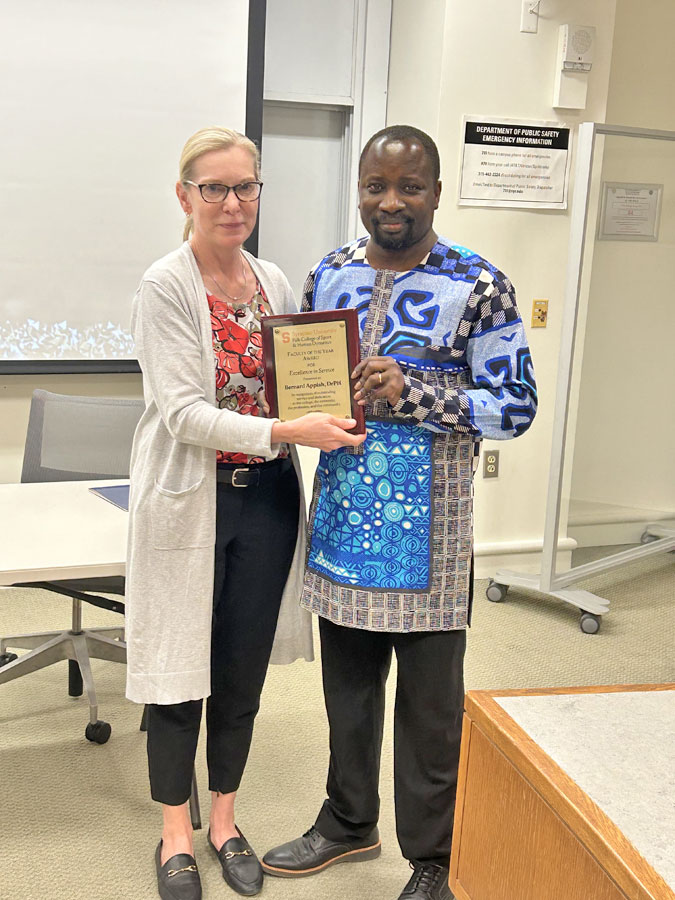
From presenter Lisa Olson-Gugerty, associate teaching professor in the Department of Public Health and a member of the Falk Faculty Council:
Since 2021, Bernard has been faculty advisor of the Graduate Student Association for Public Health, which he helped establish. Under his guidance, the association became the first student association officially affiliated with the New York Public Health Association. Additionally, since 2021, Bernard has served on our department’s Program Review and Assessment Committee (PRAC), a pivotal committee responsible for curriculum review and quality improvement. During his tenure on PRAC, our department achieved accreditation as a “Public Health Program” from the Council for Education in Public Health. In 2023, Bernard served as a member of the Falk Program Review Committee and contributed to the evaluation of SOURCE grant applications, furthering the work of Falk College and Syracuse University.
Bernard has also made significant contributions to our international community, serving on committees relevant to his expertise in pharmacy and health communication. Notably, he is a member of the U.S. Pharmacopeia (USP) Expert Committee on Healthcare Safety and Quality and the USP’s Drug and Classification (DC) subcommittee. His work with the DC subcommittee led to it being awarded the 2023 USP Award for Outstanding Contribution to USP Standards by a Volunteer Expert Group. Additionally, in fall 2023, Bernard mentored participants in Farm Radio’s online course on using radio for development, fostering impactful radio program design.
Furthermore, Bernard was selected by the Africa Center for Disease Control as a trainer and evaluator for its Public Health Journalism Fellowship program, where he secured funding for a research assistant to attend the conference in Zambia. This initiative contributes significantly to the internationalization of Falk College and the University. In the same period, Bernard joined the expert panel for the development of a manual for blood donor recruitment across Africa, an initiative of the Belgian Red Cross. Finally, Bernard has served as an editorial consultant for Health Psychology and a reviewer for PLOS Global Public Health, enhancing his contributions to the field of global health.
Joey Merrin
Assistant professor in the Department of Human Development and Family Science
Faculty of the Year Award for Excellence in Research
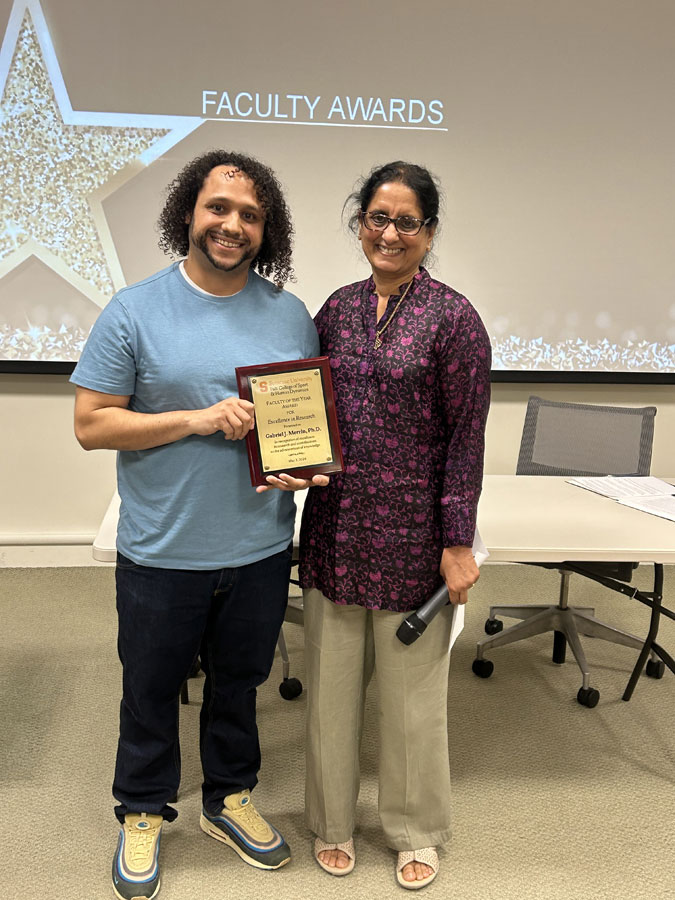
From presenter Ambika Krishnakumar, professor in the Department of Human Development and Family Science and a member of the Falk Faculty Council:
Dr. Gabriel “Joey” Merrin was selected for this honor from a very strong pool of Falk candidates, all with excellent research credentials.
Dr. Merrin is a developmental psychologist and an applied methodologist whose research agenda focuses on a wide range of important and relevant topics such as identity-based harassment, aggression, victimization in the school context, delinquency, substance use, adolescent development, and the transition to young adulthood. His research indicates a commitment to the lives of minority and oppressed groups, and he is currently engaged in translating and mobilizing research knowledge to inform intervention and prevention efforts in these communities.
In the calendar year 2023 to the present, Dr. Merrin published his work in 17 high-impact journals such as Frontiers in Psychology, Psychology of Violence, Journal of Child and Family Studies, and the Journal of Contemporary Educational Psychology, to name a few. He currently has five manuscripts under review and 10 manuscripts in preparation.
In this academic year, Dr. Merrin presented his research at 16 professional conferences. Dr. Merrin received one external grant from the National Institute of Justice as co-investigator and has one grant proposal under review with the National Institute of Health as Co-PI (co-principal investigator). According to the Scopus citations report for 2023-2024, Dr. Merrin’s research was cited by his peers in 367 articles.
Last week, Dr. Merrin was awarded the Excellence in Graduate Education Faculty Recognition Award from Syracuse University for his commitment to graduate student research. In recognition of his excellence in research and his contributions to the advancement of knowledge, Dr. Gabriel Joey Merrin receives the 2024 Falk Faculty Award for Research. Congratulations!
Class of 2024 Falk College Scholars
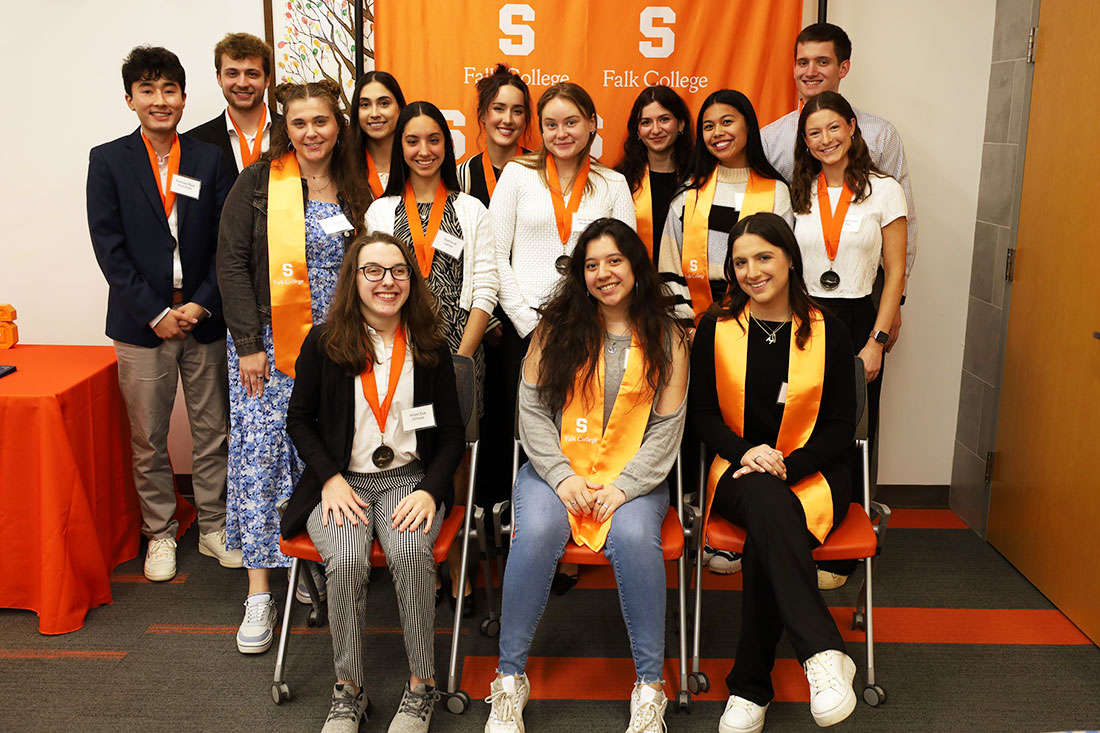
Ten members of the Class of 2024 have been named Falk College Scholars–the highest academic award conferred by the Falk College of Sport and Human Dynamics on graduating seniors. Falk Scholars represent undergraduate students who display academic excellence, exceptional campus and community engagement, independent research and creative work, innovation in their disciplinary field, and personal integrity.
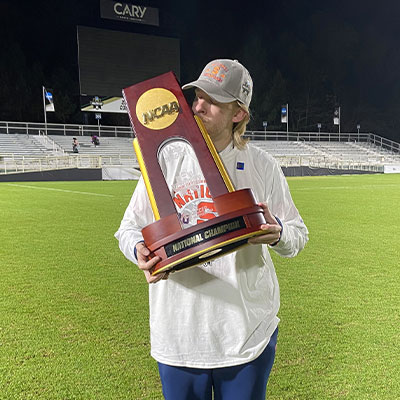
Sean Boland, Sport Analytics
My most influential–and certainly most memorable–experience at Syracuse University has been working as an analyst for the men’s soccer team. In this role, I have been able to develop technical skills, create memories, and build relationships that will last long after graduation.
I started working with the soccer team as a sophomore, thanks to a connection through the Sport Analytics program, and have loved every minute of the journey it has taken me on these last three years. Standing on the sideline with the team during the decisive penalty kick shootout that won us the 2022 NCAA Championship, running onto the field after the final shot, and getting to hold the national championship trophy are memories that I will never forget. Getting the chance to experience moments like this while also developing relevant skills that will help me as a professional in the sport analytics industry has been everything that I could have asked for and much more.
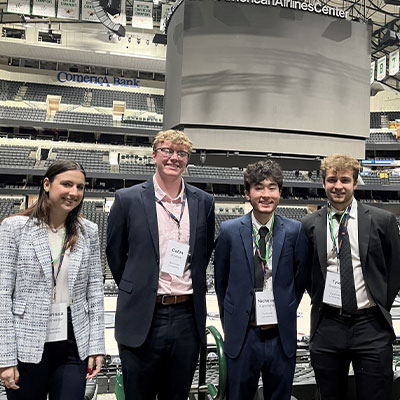
Tyler Bolebruch, Sport Analytics
The most influential moments that I have had at Syracuse University and Falk College are all the events I was able to travel to, and be a part of, including the Society for American Baseball Research (SABR) Analytics Conference, MIT Sloan Sports Analytics Conference, and National Collegiate Sports Analytics Championship (NCSAC). Each one of these events was a great experience that allowed me to meet a lot of different people and learn from the many different talks and presentations.
Beyond that, for the SABR Conference and NCSAC, I was able to compete and present my work to industry professionals. This has helped me substantially in my search for a job. Instead of simply meeting some of these professionals, they have been able to see my work and what I can do. The exposure from the Sport Analytics program and Falk College has had a massive impact on my college experience and future career opportunities.
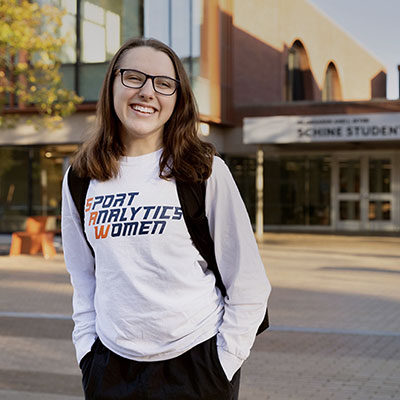
Alison Gilmore, Sport Analytics
My time at Syracuse University has been unforgettable and life-changing in so many ways. Involvement in clubs such as Sport Analytics Women Club, Baseball Statistics and Sabermetrics Club, OrangeSeeds, and OttoTHON allowed me to tap into my passions, develop personally and professionally, and surround myself with remarkable and diverse individuals. Further, my work as a Student Assistant and Peer Mentor at the Disability Cultural Center helped support my passion for advocacy while facilitating my growth in exponential ways, from speaking at the New York State capitol to co-presenting in a panel discussion at the University’s inaugural DEIA symposium.
Beyond that, as a Remembrance Scholar—forever the greatest honor of my life—attending the Pan Am Flight 103 35th Anniversary memorial service at Arlington National Cemetery alongside a few of my fellow Scholars was incredibly special. Within sport analytics, the opportunities I was afforded to attend conferences such as the Society for American Baseball Research (SABR) Analytics Conference and the MIT Sloan Sports Analytics Conference were fundamental for me professionally. I am endlessly grateful to those who have had a hand in my journey. I am forever Proud to be Orange!
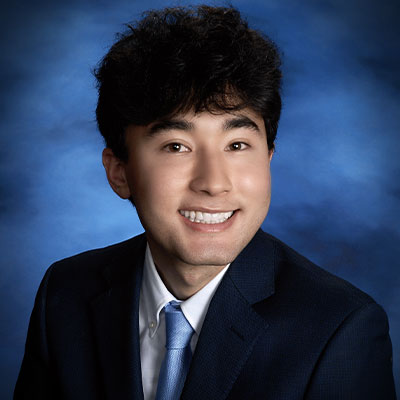
Nicholas Kamimoto, Sport Analytics
Syracuse University and the Sport Analytics program has provided me with countless opportunities throughout my four years here. I have been able to build relationships and create memories that will last a lifetime. The most memorable experiences that I have had here at Syracuse have been the competitions and research that I have been a part of, such as representing Syracuse during the 2024 Business Analytics National Collegiate Sports Analytics Championship. Our team ended up winning the championship and that was such a great feeling seeing all our hard work pay off. I had an incredible time traveling with my friends to compete.
I have also had the opportunity to work alongside (Associate Professor) Dr. Justin Ehrlich this past year. We have worked on various research papers, most notably being a paper analyzing NBA true shot charts. I created a dashboard to display all the GAM (generalized additive model) shot charts. The paper made it all the way to a finalist at the 2024 MIT Sloan Sports Analytics Conference. I am so grateful for my time at Syracuse and in the Sports Analytics program at Falk College. I thank all my professors and peers who have helped me along the way.
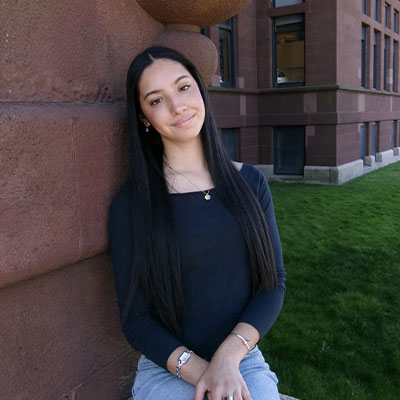
Sophia Lehrer, Human Development and Family Science
Discovering curiosity’s compass in Falk College and the Human Development and Family Science (HDFS) program revealed many shapes and silhouettes that now frame my seasons at Syracuse–challenging valleys traversed, majestic hills ascended, faces and hearts of those that stirred me on. Combining research, fieldwork, and mentorship instilled a passion for pediatric healthcare. Working with toddlers at the Bernice M. Wright Child Development Laboratory School, observing surgeries at St. Joseph’s NICU, and trips including Bloomberg’s London headquarters through Syracuse Abroad connected science, practice, and journalism as integrated pursuits.
Professors and students inspired my path from HDFS Outstanding Freshman to Falk Scholar and beyond. A USA Gymnastics State Vault Champion, I applied the physics of leaping as my teammates and I led Syracuse to the NAIGC Gymnastics National Finals! Syracuse sparked creative leaps as well, encouraging me to publish the cover article in “Healthy You” magazine while earning a minor at Newhouse. Academic, athletic, and life lessons remain as guideposts to pursue a doctorate in healthcare on a journey to become an engaged clinician, researcher, and educator. Thank you, Syracuse, for the path, passion, and people that made a difference and challenged me to do the same! A slice of gratitude among many–Go Orange!
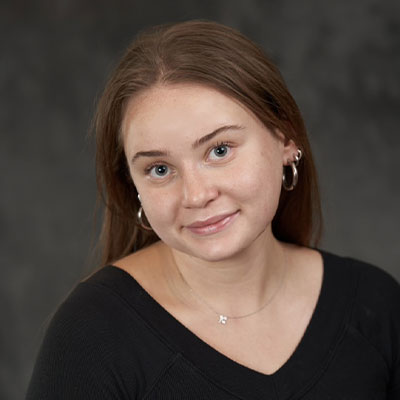
Ainsley MacLachlan, Public Health
My time at Syracuse University has truly been the most memorable four years of my life, thanks to my friends, professors, and mentors. I am incredibly grateful to have received the guidance of (Chair and Professor) Dr. David Larsen, who has supported the start of my research career while teaching me the power of wastewater surveillance in public health.
With my colleagues in Dr. Larsen’s lab, I have had the incredible opportunities of both having my work published in PLOS Global Public Health and attending the New York Water Environment Association’s annual conference. It is because of my experiences during my studies at Syracuse University and Falk College that I feel truly prepared and confident to embark on my next chapter of life.
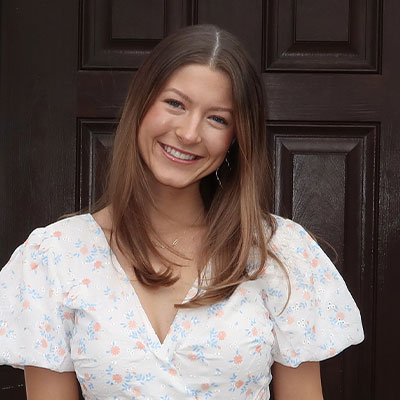
Creagan Mee, Public Health
Syracuse University has played a huge role in my personal and professional development. Working as an EMT (emergency medical technician) for Syracuse University Ambulance allowed me to explore my passion for medicine. This experience not only taught me essential skills in patient care but also significantly developed my self-confidence. Studying abroad in Florence, Italy, was also a transformative experience that broadened cultural understandings and pushed me outside my comfort zone.
Additionally, conducting research for my honors thesis on the relationship between preterm births and the social determinants of health enhanced my understanding of health issues, especially in maternal reproductive health. This experience equipped me with research skills and valuable knowledge that I will apply in my future career to deliver equitable and compassionate healthcare. I am forever grateful for the friendships, mentorship, and opportunities that Syracuse University has provided me, shaping me into the person I am today.
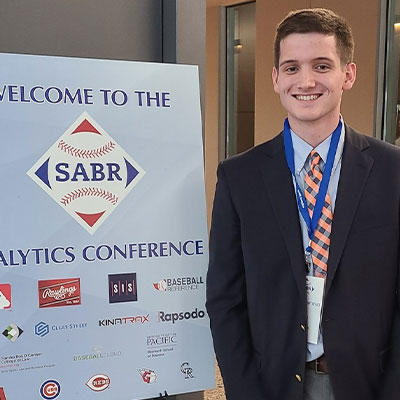
Alex Oppel, Sport Analytics
My time at Syracuse University has been everything I could have hoped for. While COVID made my college transition more challenging, the experiences I have had and the relationships I have built have allowed me to grow into the person I am today.
Many of my favorite memories at Syracuse have come from my involvement with the Baseball Sabermetrics Club. I have had the opportunity to participate in several baseball analytics case competitions, which served as a platform to showcase and develop my analytical skills. The last two in-person competitions in Phoenix, Arizona, were especially fun. Being able to attend World Baseball Classic and spring training games with peers are experiences I will always remember.
Whenever I reflect on my four years at Syracuse, I will think about the people I am thankful to now call good friends. I have thoroughly enjoyed being surrounded by like-minded classmates who share my passion for sport, as well as interacting with the faculty and staff who make our program unrivaled.
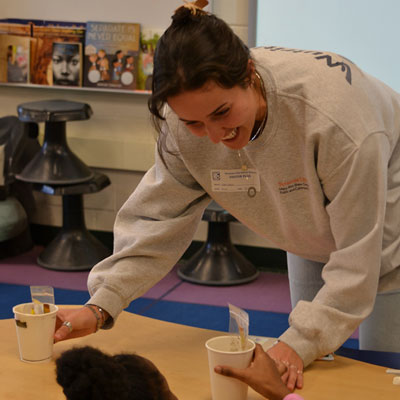
Tess Palin, Nutrition Science
My most influential and memorable experiences in my undergraduate career have been in my time working with Syracuse University’s Mary Ann Shaw Center for Public and Community Service. Starting as a sophomore, I volunteered at Hillside Work-Scholarship Connection to teach students at risk of not graduating how to cook and build balanced meals. After becoming an intern at the Shaw Center, I was able to run that specific program, as well as create and facilitate two different pilot programs that worked with different community partners and students.
I have also been able to help create community events in collaboration with “Take Back the Streets,” a grassroots initiative out of the west side of Syracuse to bring resources to different members of the community. These experiences have strengthened my desire to work with, and for, the various communities I am a part of, which has informed my future education and career goals.
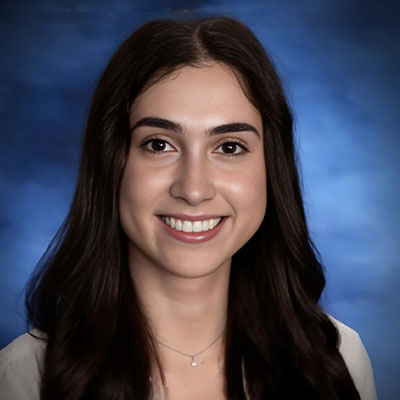
Mariana Pérez Lugo, Nutrition Science
My time at Syracuse University has truly been a journey filled with impactful moments. Joining Dr. Latha Ramalingam’s research lab during my freshman year stands out as a highlight of my undergraduate journey, particularly as I took on the role of primary author for our published manuscript. Beyond academics, I found various ways to fulfill my passion for serving others, such as volunteering with the Shaw Center’s Food Busters Program, leading the Catholic Student Association as president, and even studying abroad in Madrid, immersing myself in diverse communities and cultures.
In addition to these endeavors, my role as a volunteer Emergency Medical Technician at Syracuse University Ambulance was pivotal in shaping my journey. It solidified my passion for medicine, strengthening my commitment to a personalized approach to healthcare as I work towards my goal of becoming a physician.
Class of 2024 Public Health Awards
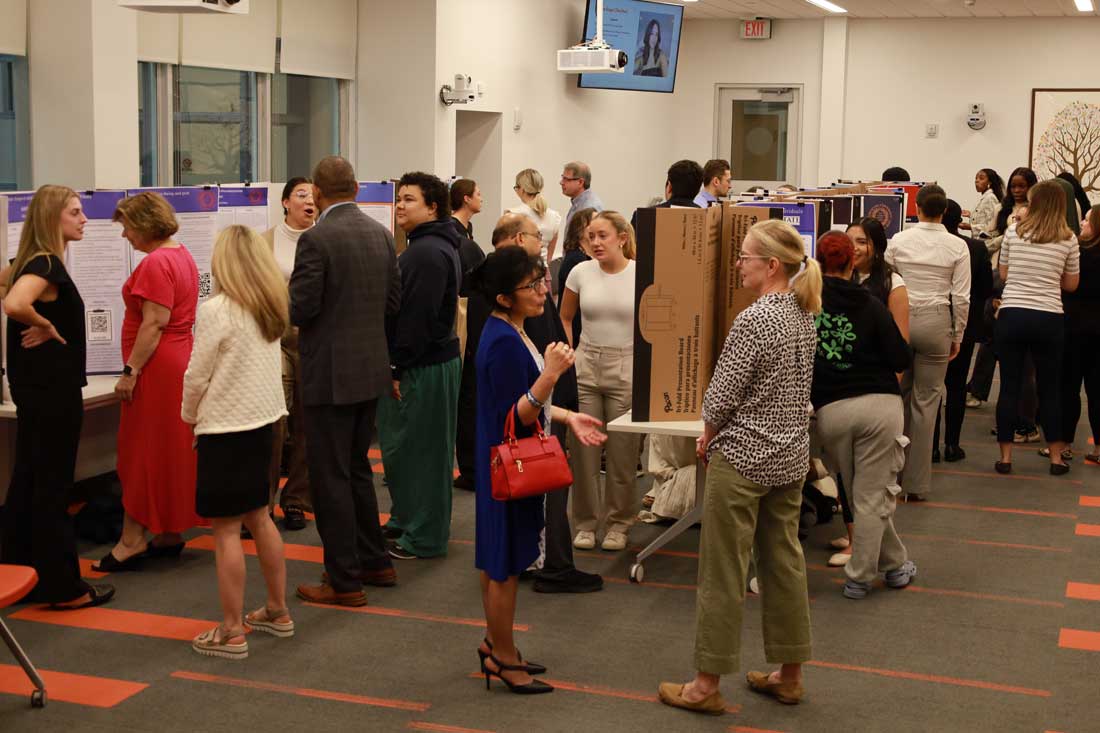
Academic Excellence in Public Health
This award is given to the graduating senior from the Department of Public Health with the highest cumulative GPA in public health core courses.
Recipient: Creagan Mee
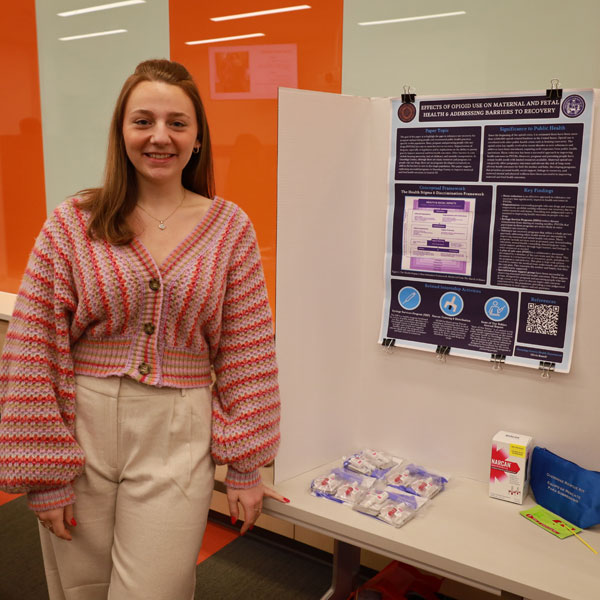
Excellence in Public Health Practice
This award is given to a graduating senior who demonstrates superior knowledge and skill in public health practice.
Recipient: Olivia Battell
An example of Olivia’s public health innovation is her work to design a program and implementation plan to address the effects of opioid use in maternal and child health. She and her team designed a program called M.O.T.H.E.R. (Mobile Opportunities for Treatment, Healing, Empathy & Recovery) to reach populations that face housing or transportation insecurity. Their proposal was shared with the District Attorney’s Office and Onondaga County Health Department Substance Use Initiatives division. Olivia has also been engaged in community harm reduction syringe exchange programs and lead poisoning prevention in Syracuse.
Public Health Leadership Award
This award recognizes a graduating senior whose leadership role within Syracuse University organizations, volunteer service, or campus departments has greatly impacted the campus the larger community level.
Recipient: Alejandro Parra
Through his roles in public health interventions, veteran rehab programs, accessible transport, mentorship initiatives, and military training leadership, Alejandro has showcased exceptional leadership talents across diverse areas related to health, equity, and broader community service. Alejandro is the recipient of the Mentor of the Year award from the Office of Multicultural Affairs for exceptional guidance provided to six mentees to foster academic, professional, and personal growth.
Alejandro also served as a Senior Career Ambassador at Falk College to guide and prepare fellow public health students. As a member of ROTC, Alejandro conducted field tactics training and guided junior ROTC cadets to aid in their leadership development. On campus he served as a Residential Assistant and worked with Syracuse University Medical Transport. As an intern for Onondaga County, he has served as a trusted point of contact for those battling addiction. He also interned with the Syracuse VA as a Physical Therapy Intern and Recreational Therapy Volunteer, leading therapeutic initiatives to aid veteran rehabilitation and recovery.
Research Award for Public Health
This award is given to a graduating senior who has engaged in public health research.
Recipient: Olivia Fowler
Olivia has worked as a SOURCE student research assistant for two years and has participated in two faculty mentored research projects, “Research Ethics for All: Research Ethics Training for Patient Stakeholders with Intellectual and Developmental Disabilities,” and “Project ENGAGE: Including Adults with Intellectual Disability in Precision Medicine Research.”
Social Justice in Public Health
This award is given to a graduating student whose volunteer work, research, and career goals focus on the elimination of inequalities in health.
Recipient: Lacey Martin
Lacey’s interest in public health stem from her desire to understand health beyond a biological perspective and her interest in addressing health inequities that disproportionately affect minority communities. Lacey has interned with Grow NYC to promote healthy nutritional habits, access to affordable fresh produce, and establishing community gardens for underserved minority and elderly communities.
Excellence in the Public Health Graduate Program
This award recognizes an outstanding student or students in the public health graduate program and is based on academics, quality of internship outcomes, and impact at the campus or larger community level.
Recipient: Michelle Asiedu-Danso
Michelle has maintained a 4.0 GPA throughout her graduate studies and received an award for her presentation at the 2023 American Public Health Association (APHA) annual meeting. During her time in the MPH program, she volunteered with the New York Wastewater Surveillance Network, where her analytical findings in disease monitoring disparities have been shared with state and local health departments to address these disparities. She was also selected to attend the 2023 Conference on Public Health In Africa (CPHIA) in Zambia. Michelle is also a candidate for the 2024 Graduate Dean’s Award for Excellence in Research and Creative Work.
Recipient: Julia Chukwu-Boms
During Julia’s internship at the Onondaga County Health Department, she created educational materials for households throughout Onondaga County to inform them of actions they can take to reduce exposure to lead in drinking water. She also created systems maps to facilitate stakeholder collaboration and empower community members to identify funding resources for older home renovations at risk of lead exposure, and testing for lead in drinking water in a centralized resource. She has also participated in faculty research projects and co-authored newspaper content analysis of childhood lead poisoning as an environmental justice issue among people of color.
Graduate Student Marshall
The Marshall is selected for their achievement in scholarship, academic honors, student organization involvement, leadership, and collegiality, as well as campus and community engagement and service.
Recipient: Torojah Williams
Torojah has participated in community-based programs to improve health on campus for Syracuse University students and across the city of Syracuse. Torojah led an initiative to collect and disseminate women’s health products to local pantries to reduce disparities and period poverty that affect women in our communities. She also participated in the Broadstreet Institute’s Datathon, where she modeled and visualized data to improve maternal health outcomes.
Undergraduate Student Marshall
The Undergraduate Class Marshal is a student who exemplifies the spirit of the senior class and has excelled during their time at Syracuse. Campus and community engagement and services is an additional consideration for this award.
Recipient: Siya Kumar
During her Internship at Upstate Cancer Center, Siya created cancer prevention marketing materials and planned large scale events for people affected by cancer. Siya is the President of Global Medical Brigades and led a volunteer group of student and healthcare professionals conducting a medical clinic in rural Panama and Honduras, where they provided care to over 500 patients. Siya also raised over $90,000 in monetary donations and received hundreds of in-kind healthcare donations. Siya is a Medical Case Management Assistant for the Institute of Human Services, providing services for homeless and disabled patients. At Syracuse University, she is Co-Chair of Health and Wellness for Students Association, part of the Barnes Center Office of Health Promotion Team Leaders, and the President of the Hindu Students Association. In the community, she builds community gardens with Interfaith Works, is a Social Media Ambassador for the Samaritan Counseling Center, and organized the YWCA Week Without Violence Event for the mayor and county executive. She assisted Dr. Sandra Lane with lead poisoning research by presenting literature reviews to Legal Services CNY.
Falk Scholar
Falk College Scholars represent undergraduate students in Falk College who display academic excellence, exceptional campus and community engagement, and personal integrity.
Recipients: Creagan Mee and Ainsley MacLachlan
Graduate School Master’s Prize for Falk College
This annual award is selected by the graduate school with one master’s student in each of Syracuse University’s schools and colleges who have demonstrated excellence in scholarship and research in graduate study.
Recipient: Nicole Pulido
Nicole has a 4.0 GPA and has been actively involved in research. She worked as a research assistant with Dr. David Larsen on wastewater surveillance to inform municipalities on pathogens/substances detected in wastewater. Her research culminated in her co-authorship of a high-impact scholarly publication in 2024 titled “Precision of public health in schools enabled by wastewater surveillance: A case study of COVID-19 in an Upstate New York middle-high school campus during the 2021–2022 academic year.”
Nicole worked with the Allyn Family Foundation conducting data analysis on the Youth Risk Behavior Survey findings. She has also worked with the Madison County Department
of Health conducting applied research.
Reimagining Falk College
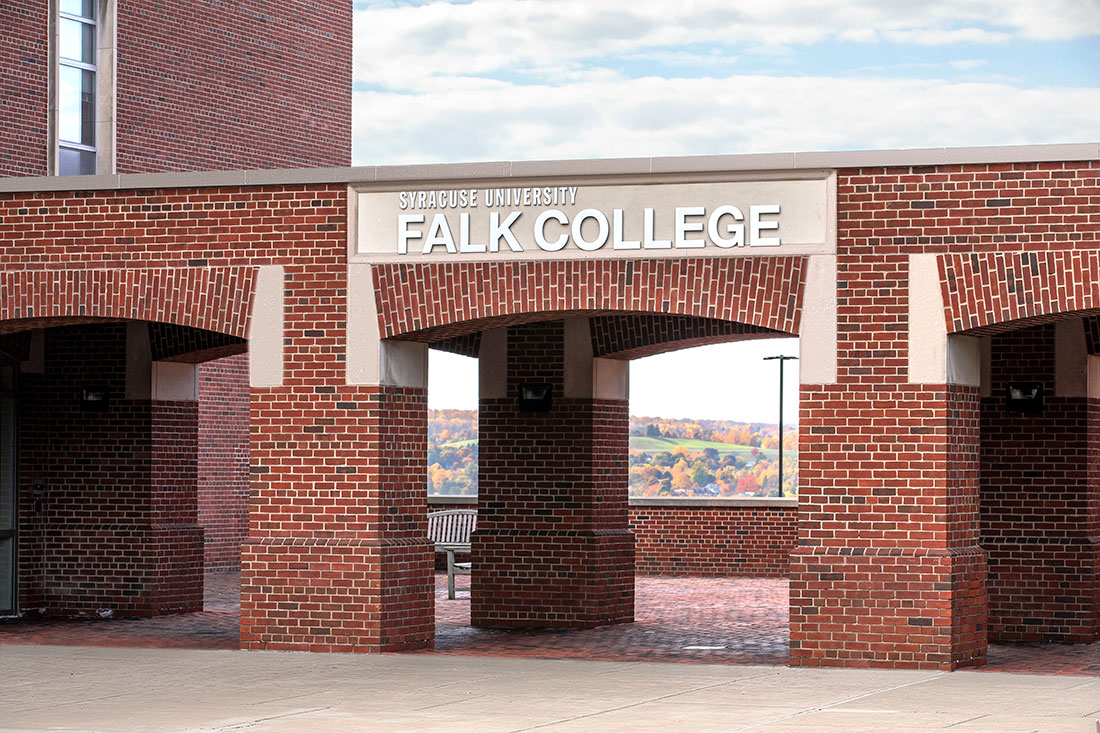
Two decades after the launch of its sport management program, Syracuse University today announced that as a result of its significant growth and academic excellence, the David B. Falk College of Sport and Human Dynamics will become the David B. Falk College of Sport. The first-of-its-kind college will focus exclusively on sport-related disciplines, making the University among the leading academic institutions for preparing students to drive innovation among and lead in sport-related fields and industries.
“Falk College has experienced extraordinary growth, particularly in its renowned sport management program, over the last 20 years, thanks in large part to its innovative faculty and the relentless energy and leadership of former Dean Diane Lyden Murphy,” says Vice Chancellor, Provost and Chief Academic Officer Gretchen Ritter. “With the growth of sport participation domestically and globally, there is unprecedented demand for talented practitioners and leaders. The Falk College of Sport will produce hundreds of students every year who are educated across multiple disciplines and well-prepared to lead in the burgeoning sports field.”
Reimagining Falk College
Since launching its sport management program in 2005 and later adding programs in sport analytics and esports communications and management, Falk College has achieved prominent status as a national leader in sport education. This transformation will make Falk College the first standalone college on an R1 campus that specifically focuses on sport through a holistic academic lens.
Dean Jeremy Jordan, who was appointed last July, says this transformation will expand and enrich sport scholarship at Syracuse.
“Syracuse University has long been a leader in the development of sport-related programs,” says Jordan. “From creating the first-ever sports analytics program to the recent launch of an esports major, the University and Falk College have demonstrated the value of and important role sport plays in the day-to-day lives of people, and not just elite athletes. This reimagination of Falk College is a bold step in solidifying Syracuse University as the preeminent institution for sport-related academic study in the country.”
The reimagined Falk College of Sport will house academic programs in sport management, sport analytics, exercise science, nutrition and, jointly with the Newhouse School, esports. It will focus on four areas of academic excellence: Sport Business, Human Performance, Sport Technology and Innovation, and Community Sport and Wellness. The college will also launch a new research institute focused on sport, which will leverage an interdisciplinary, cross-campus approach to drive innovation in sport and health outcomes and integrate expertise in business, digital media, and technology, among other areas of academic focus. It may include creating new or expanding partnerships among the University’s schools, colleges and academic units, such as the S.I. Newhouse School of Public Communications, the Whitman School of Management, the Maxwell School of Citizenship and Public Affairs, the College of Law and others.
Today’s announcement follows a months-long exercise during which a Sport Management Task Force, consisting of faculty, staff and academic leaders, was charged with identifying ways to enhance and extend Falk’s excellence in sport-related programs. The task force, co-chaired by Jeff Rubin, senior vice president for digital transformation and chief digital officer, and Jamie Winders, associate provost for faculty affairs, submitted a report to Provost Ritter earlier this academic year. Recommendations outlined tangible action the University can take to connect, align and integrate teaching and research related to sport across the academic enterprise.
“The task force concluded that there is a timely opportunity for Falk to build on its strengths and capitalize on relevant marketplace trends,” says Rubin. “As someone who has worked in this space for nearly three decades, there is no better time for Syracuse University to take this bold step than now. Organizations across the country and around the globe are looking for career-ready talent. Falk College is poised to meet that need.”
The work happening in Falk College aligns with the University’s commitment to applying an entrepreneurial and innovative philosophy to elevating sport across the campus. In addition to enhancing sport-related academic opportunities, the University has also taken steps in recent years to widen the availability of esports–academically and recreationally—and has grown current and created new club sport programs.
Shaping the Future of Human Dynamics
As part of the Falk transformation, Syracuse University will invest in a strategic reimagination of human dynamics academic programs with the goal of positioning them for future success and impact. To support this work, Provost Ritter will convene a Human Dynamics Task Force, consisting of academic leaders, department chairs and program directors, faculty, alumni and community partners. The task force will be charged with reviewing the college’s human dynamics programs and identifying future pathways for their growth and success. These academic programs include human development and family science, marriage and family therapy, public health and social work. Students enrolled in these programs and beginning at Syracuse University in Fall 2024 will not be impacted by the University’s reimagination of its human dynamics portfolio.
Provost Ritter says given the increasingly complex public health landscape and the growing global need for health and human services and credentialed professionals, the time is right to reimagine these longstanding academic programs to meet emerging demands in their fields.
“The Human Dynamics Task Force will determine prospects for expansion, innovation and alignment with the University’s overall Academic Strategic Plan, ‘Leading with Distinction,’” says Ritter. “These programs have a deep history at Syracuse University and have had a profound impact on the City of Syracuse, Central New York and communities around the globe. The faculty who teach and research in these disciplines will have the opportunity to review, reimagine and shape the future of the programs with the full support of the University.”
Provost Ritter has asked Associate Provost for Academic Affairs Lois Agnew and newly-appointed Associate Dean for Human Dynamics Programs Rachel Razza, associate professor and previously chair and graduate director in the Department of Human Development and Family Science, to lead and guide the reimagination of the human dynamics programs. The task force will be supported by an external consultant to help it execute on its charge. Additionally, given the significant synergy between the programs and the City of Syracuse and Onondaga County, Syracuse Deputy Mayor Sharon Owens and Deputy County Executive for Human Services Ann Rooney have also agreed to serve on the task force.
“I am grateful to Lois, Rachel, Deputy Mayor Owens and Deputy County Executive Rooney for their willingness to collaborate on this important work, and I look forward to partnering with the other members of the task force,” says Provost Ritter. “These areas of academic excellence are not only central to our University’s mission but also critical to the communities, particularly those who are currently underserved, that our students will eventually serve as the next generation of social workers, therapists, public health professionals and human services providers.”
The Human Dynamics Task Force will receive its charge from Provost Ritter by the end of the spring semester. It will begin its work in earnest over the summer and submit its findings to the provost by the end of October.
An SU News story originally published on April 15, 2024.
Three for One
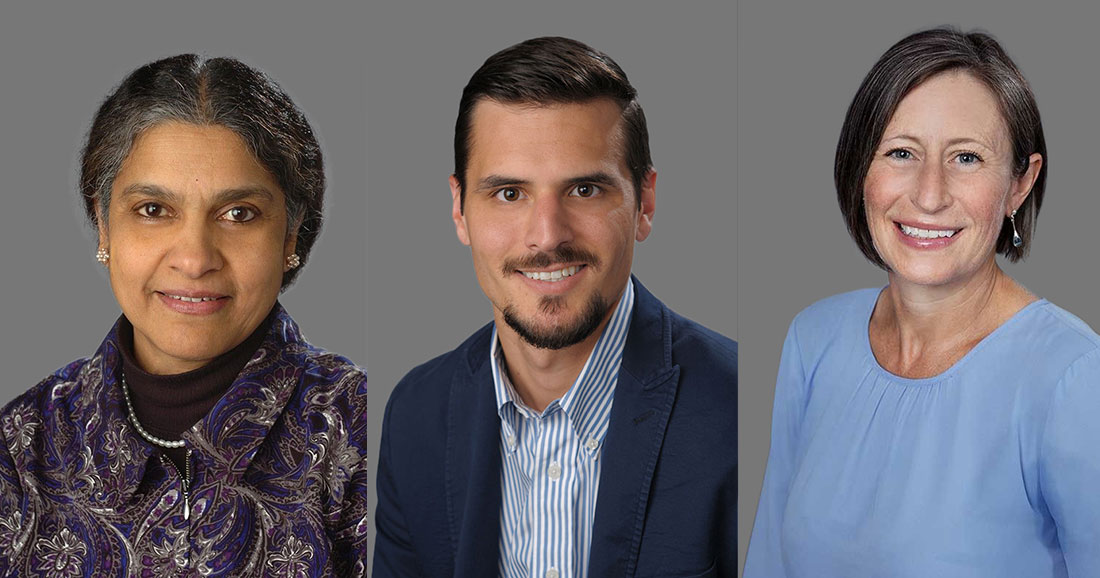
“Every year, we come together to celebrate the outstanding contributions and tremendous success of our students, faculty, staff and broader community,” says Chancellor Kent Syverud. “The accomplishments of this year’s recipients reinforce what it means to be Orange. This ceremony also shines a bright spotlight on the work being done around campus, much of which happens behind the scenes. I thank the many members of our community who organized this event and look forward to recognizing this year’s winners.”
Two major awards—the Chancellor’s Medal and the Chancellor’s Citation for Excellence—will be bestowed. The ceremony will also include the presentation of the Student-Athlete Award, Judith Seinfeld Scholarship, Meredith Professorship for Teaching Excellence, Teaching Recognition Award, Diversity and Inclusion Award, William Pearson Tolley Medal for Distinguished Leadership in Lifelong Learning and Chancellor’s Forever Orange Award.
Emeriti faculty who retired in 2023 and employees who celebrated years of service milestones in 2023 will also be recognized. This year’s University Scholars, Senior Class and School and College Marshals, and Remembrance and Lockerbie Scholars will also be honored.
All members of the University community are invited and encouraged to attend. A reception will follow in the lobby of the Heroy Geology Laboratory.
American Sign Language (ASL) interpretation and Communication Access Realtime Translation (CART) will be provided at the ceremony. For questions about accessibility or to request accommodations, contact Gabe Coleman at gbcolma@syr.edu.
Award Recipients
The Chancellor’s Medal is the University’s highest honor and is awarded to individuals in honor of their trailblazing and extraordinary contributions to the University, to an academic body of knowledge or to society. This year’s recipient is Shiu-Kai Chin, Laura J. and L. Douglas Meredith Professor for Teaching Excellence and professor of electrical engineering and computer science in the College of Engineering and Computer Science.
The Chancellor’s Citation for Excellencerecognizes individuals who have made outstanding contributions in four overarching categories:
- The award for Excellence in Student Research recognizes students who have engaged in collaborative research that has the potential to make a deep and lasting impact on greater society. This year’s recipients are Jingjing Ji, a doctoral candidate in chemical engineering in the Department of Biomedical and Chemical Engineering in the College of Engineering and Computer Science (graduate), and Ashtha Singh, an international relations major in the Maxwell School of Citizenship and Public Affairs and citizenship and civic engagement major in the Maxwell School (undergraduate).
- The award for Outstanding Contributions to the Student Experience and University Initiatives acknowledges faculty and staff who, through their work, enhance the undergraduate experience for students or make invaluable contributions to supporting and advancing the University’s mission and goals. The recipients are Charisse L’Pree Corsbie-Massay, associate professor of communications in the S.I. Newhouse School of Public Communications (faculty); Maureen Casey, chief operating officer for the D’Aniello Institute for Veterans and Military Families (professional staff); Amy Schmidt, program coordinator of citizenship and civic engagement in the Maxwell School (professional staff) and Jolanta Niwelt, events coordinator at Lubin House (support staff).
- The Faculty Excellence and Scholarly Distinction award is intended for faculty members who are collaborators in work of intellectual richness that has the potential for future impact. The work of these nominees offers possibilities for collaboration within the University and outside in partnership with others. This year’s honorees are Wayne Franits, Distinguished Professor in the Department of Art and Music Histories in the College of Arts and Sciences, and Katherine McDonald, associate dean of research and professor of Public Health in the Falk College of Sport and Human Dynamics.
- Chancellor’s Citation for Excellence, Lifetime Achievement Award. This award honors those who have made extraordinary contributions toward advancing all four pillars of excellence over the arc of their careers while at Syracuse University and beyond. This year’s recipient is Shobha Bhatia, Laura J. and L. Douglas Meredith Professor for Teaching Excellence and professor of Civil and Environmental Engineering in the College of Engineering and Computer Science.
The other awards to be presented are:
- The Student-Athlete Award recognizes the top female and top male student athletes and are presented to the senior student-athletes with the highest cumulative grade point average over the course of their academic and athletic careers. This year’s recipients are Izabela Krakic, an international relations major in the Maxwell School of Citizenship and Public Affairs and College of Arts and Sciences and member of the women’s rowing team, and Julius Rauch, an entrepreneurship and emerging enterprises major in the Whitman School of Management and a member of the men’s soccer team.
- Seinfeld Scholarship: Each year Syracuse University honors the talents of outstanding faculty or students through an award made possible by Judith Greenberg Seinfeld ’56, a distinguished alumna and member of the University Board of Trustees. Awards are made to those who have been determined by their peers to have made outstanding contributions to the beauty of the world, to have added to human values and to ending human abuse anywhere in the world, and to have demonstrated passion for excellence, creativity and originality in academic or artistic fields. This year, the designation is bestowed upon a faculty member, Rebecca Ortiz, associate professor of advertising in the Newhouse School.
- The Laura J. and L. Douglas Meredith Professorships for Teaching Excellence were created in 1995 to recognize and reward outstanding teaching among faculty. The 2024-27 Meredith Professors are Joon Park, professor in the School of Information Studies, and Cora True-Frost, Bond, Schoeneck and King Distinguished Professor in the College of Law.
- In 2001, the Meredith Professorship Program was expanded to recognize teaching excellence by non-tenured faculty and adjunct and part-time instructors. Awards are given in two categories: Early Performance and Continuing Excellence. This year’s honorees in the Early Performance category are Kelly Leahy, assistant professor of television, radio and film in the Newhouse School; Farzana Rahman, associate teaching professor of electrical engineering and computer science in the College of Engineering and Computer Science; Milton Santiago, assistant professor of visual communications in the Newhouse School; Darwin Tsen, assistant teaching professor of Chinese and Chinese language in the College of Arts and Sciences; and Nina Wilson, assistant professor in the School of Architecture. The two honorees in the Continuing Excellence category are Kenneth Marfilius, assistant dean of online and distance education and associate teaching professor of social work in the Falk College, and Sudha Raj, teaching professor and graduate director of nutrition and food studies in the Falk College.
- The Diversity and Inclusion Award recognizes an individual who is integral in helping us achieve academic excellence at a university that is welcoming to all through our investments in a diverse, inclusive, accessible and equitable community. This year’s recipient is Suzette Meléndez, teaching professor in the College of Law and faculty fellow for the Office of Strategic Initiatives and the Office of Diversity and Inclusion.
- The William Pearson Tolley Medal for Distinguished Leadership in Lifelong Learning is based in the School of Education and honors national or international leadership in support of lifelong learning. This year’s recipient is Rhodia Thomas ’77, executive director of MidPenn Legal Services, adjunct professor of law at Dickinson University and an alumna of the School of Education.
- The Chancellor’s Forever Orange Award recognizes individual students, faculty or staff who—by virtue of extraordinary hard work, good values and commitment to excellence—have come to embody the best of Syracuse University. This year’s recipients are Colleen O’Connor Bench, associate vice president of parent engagement and student experience, and Ian McIntyre, head coach of the men’s soccer team.
Page 4 of 26
